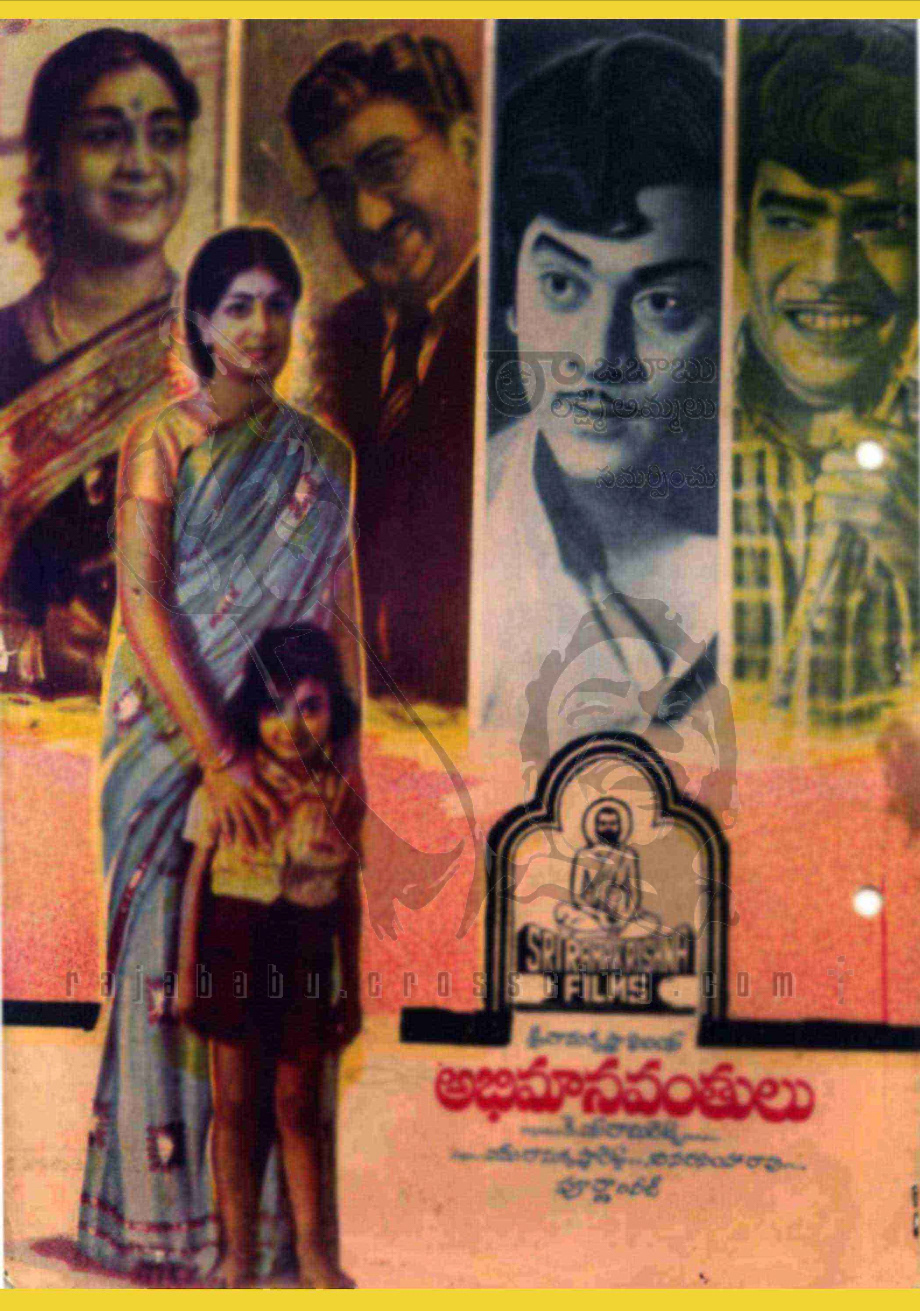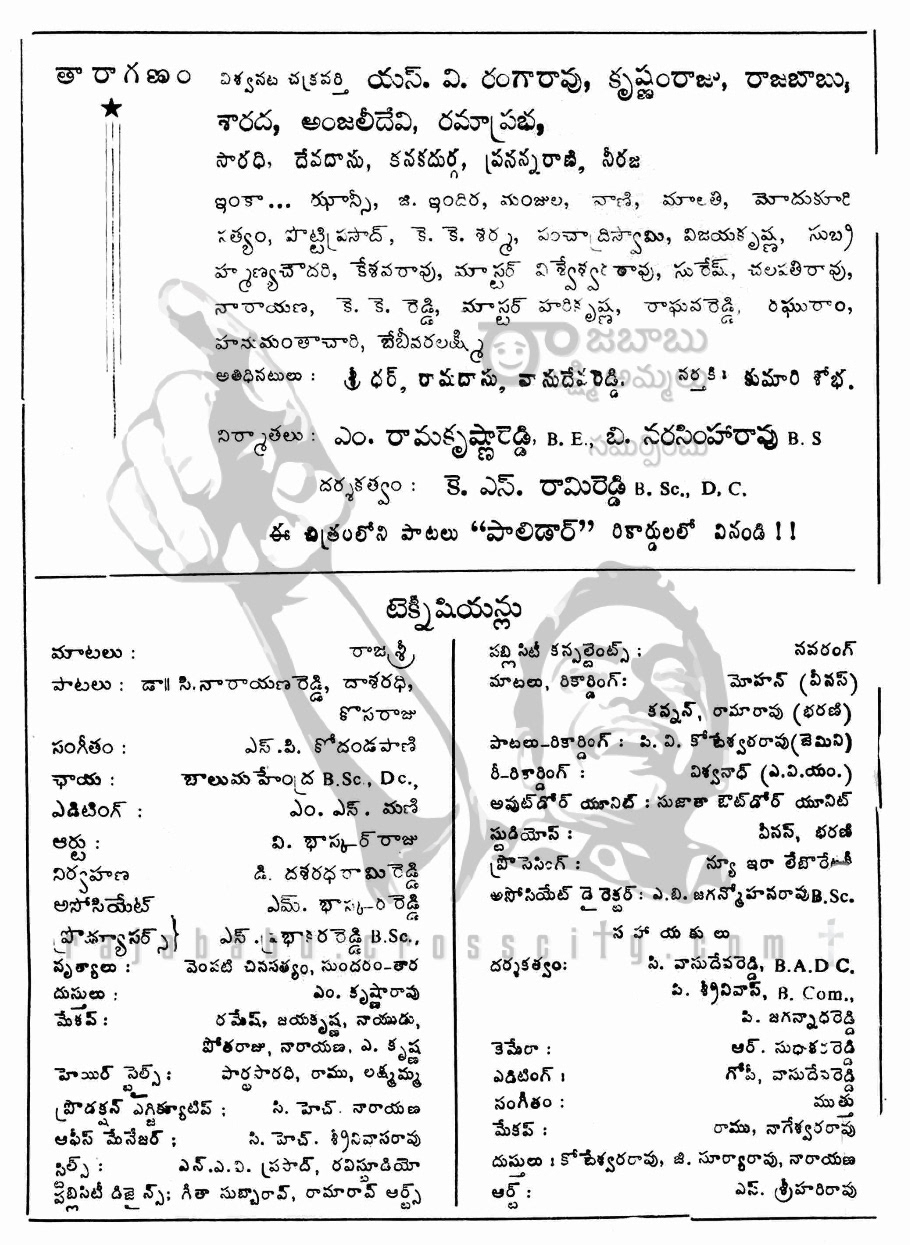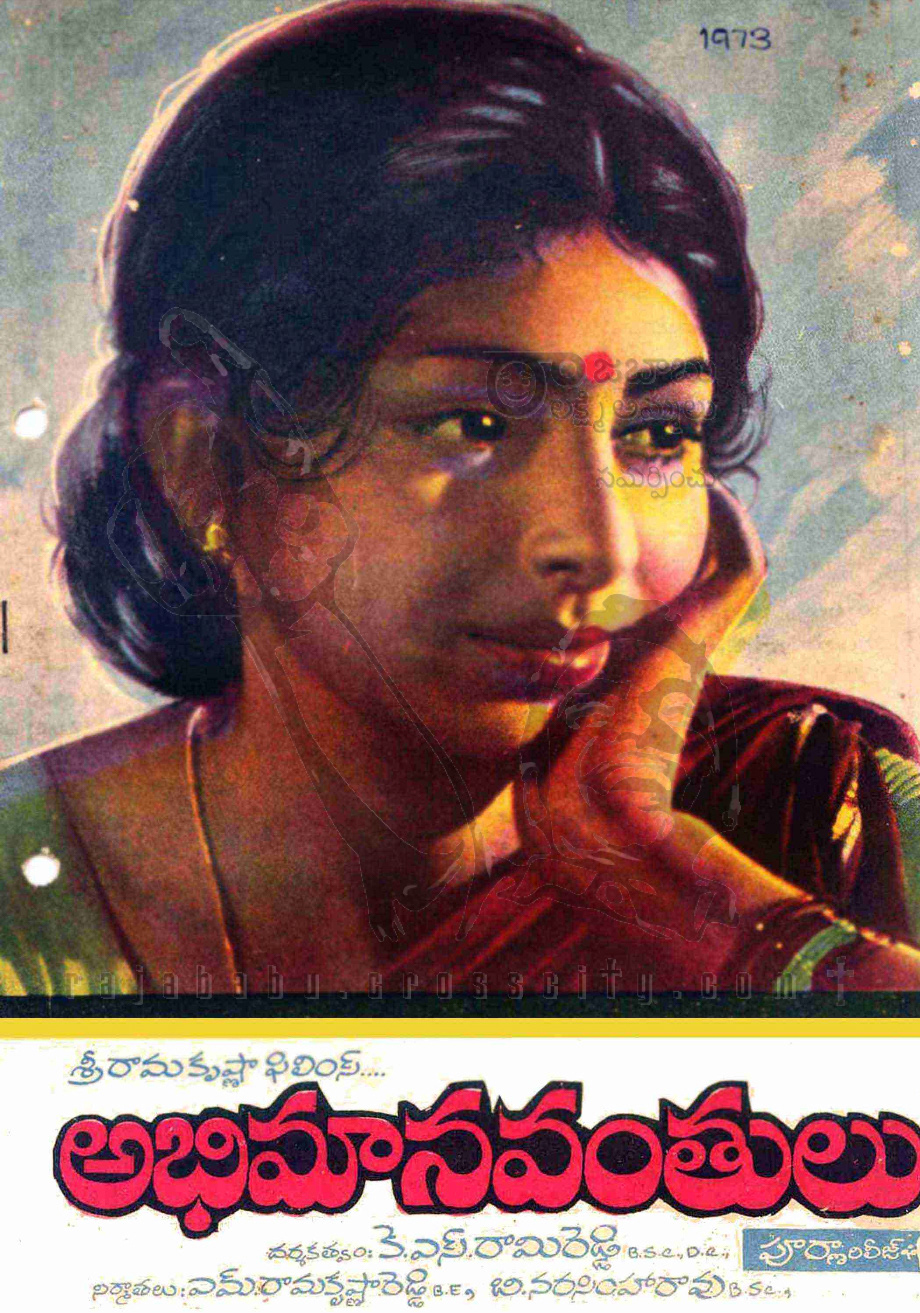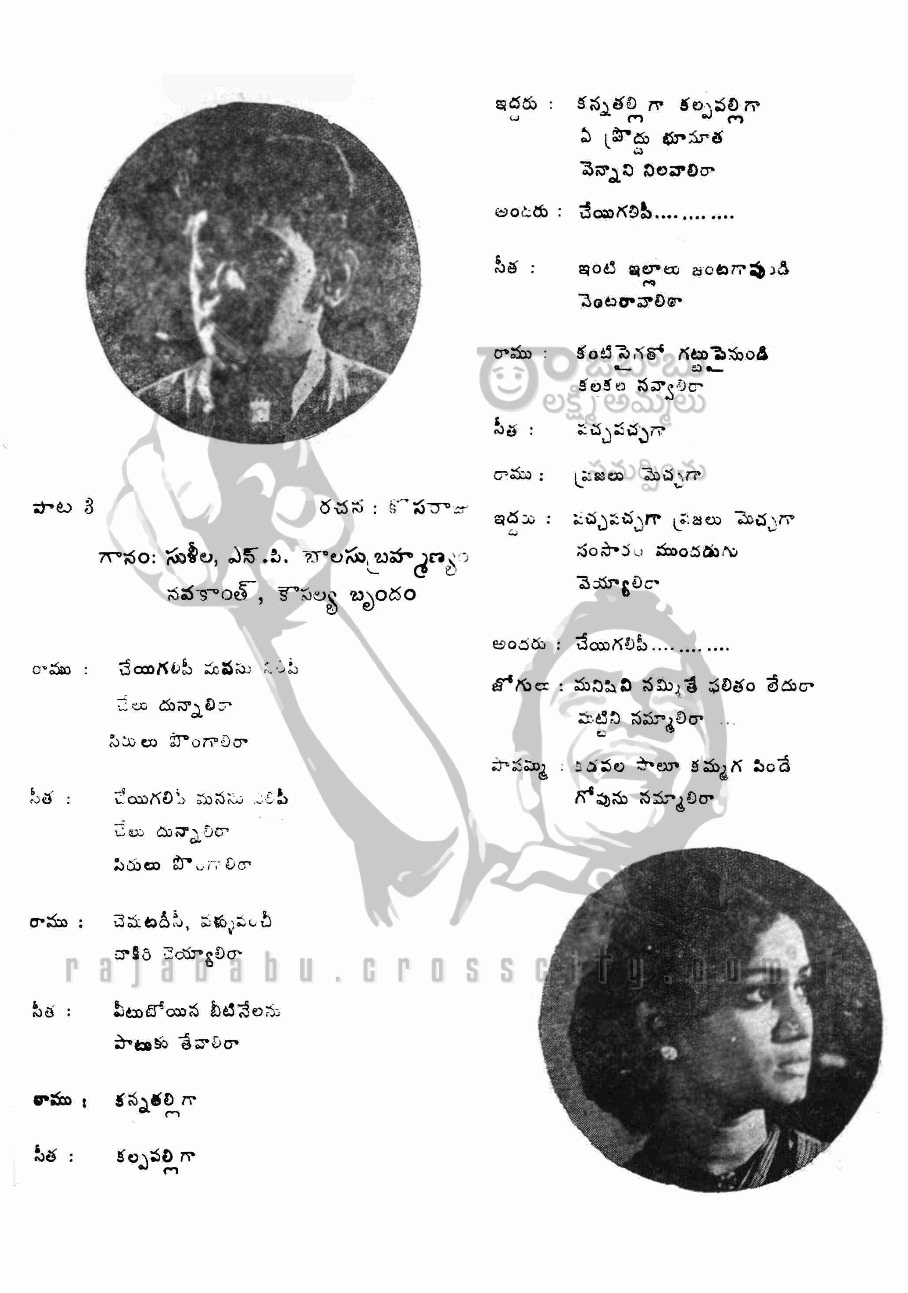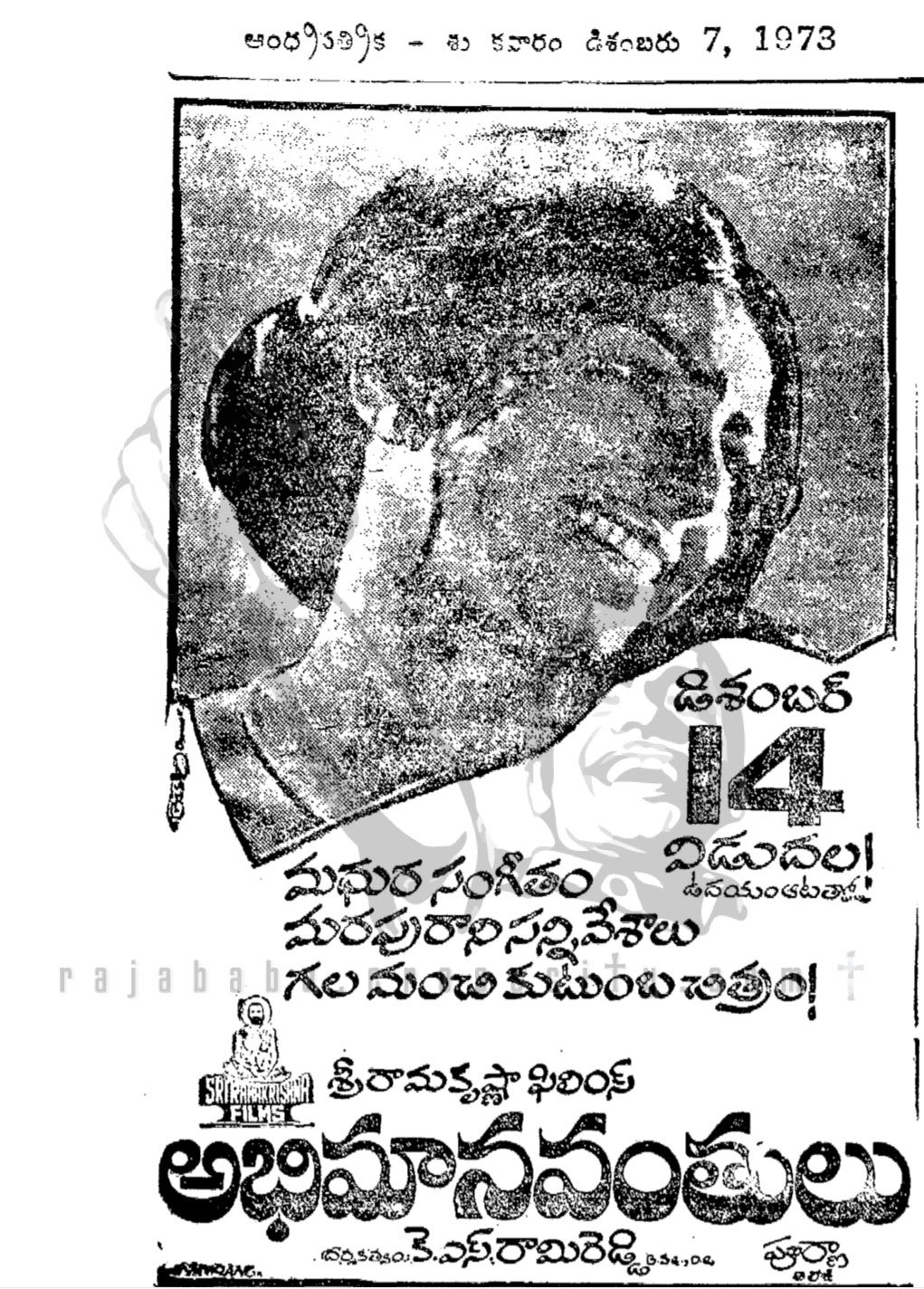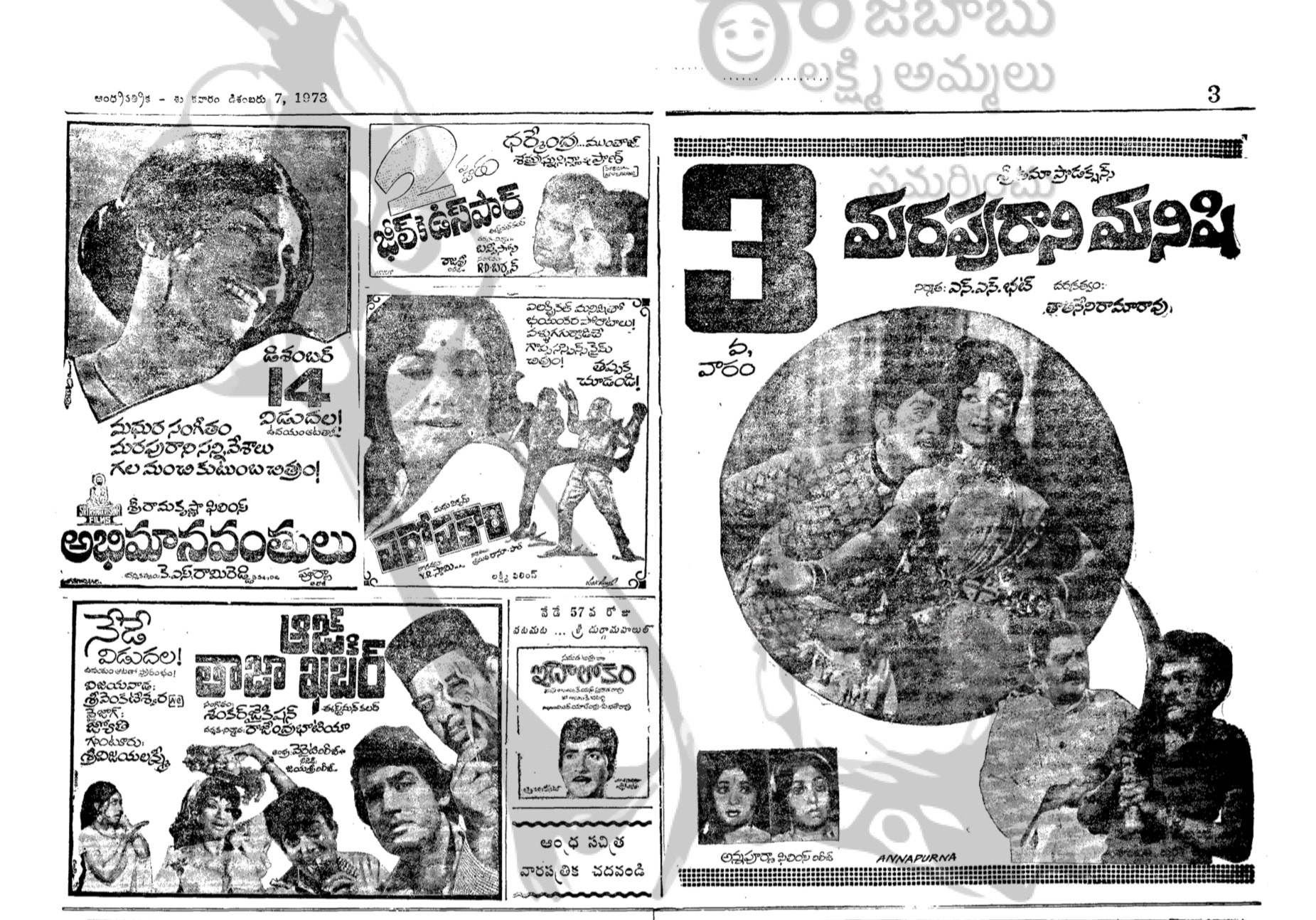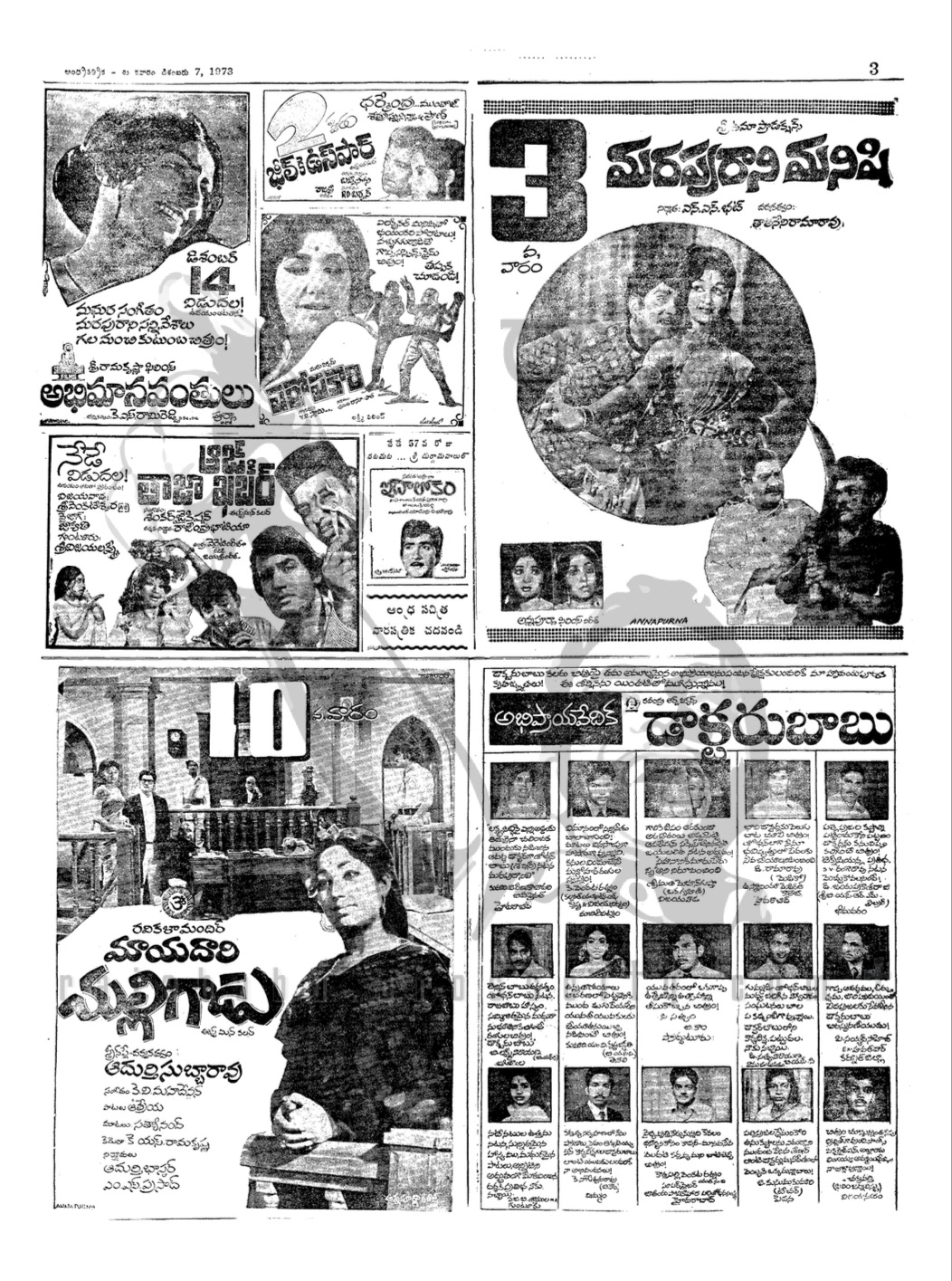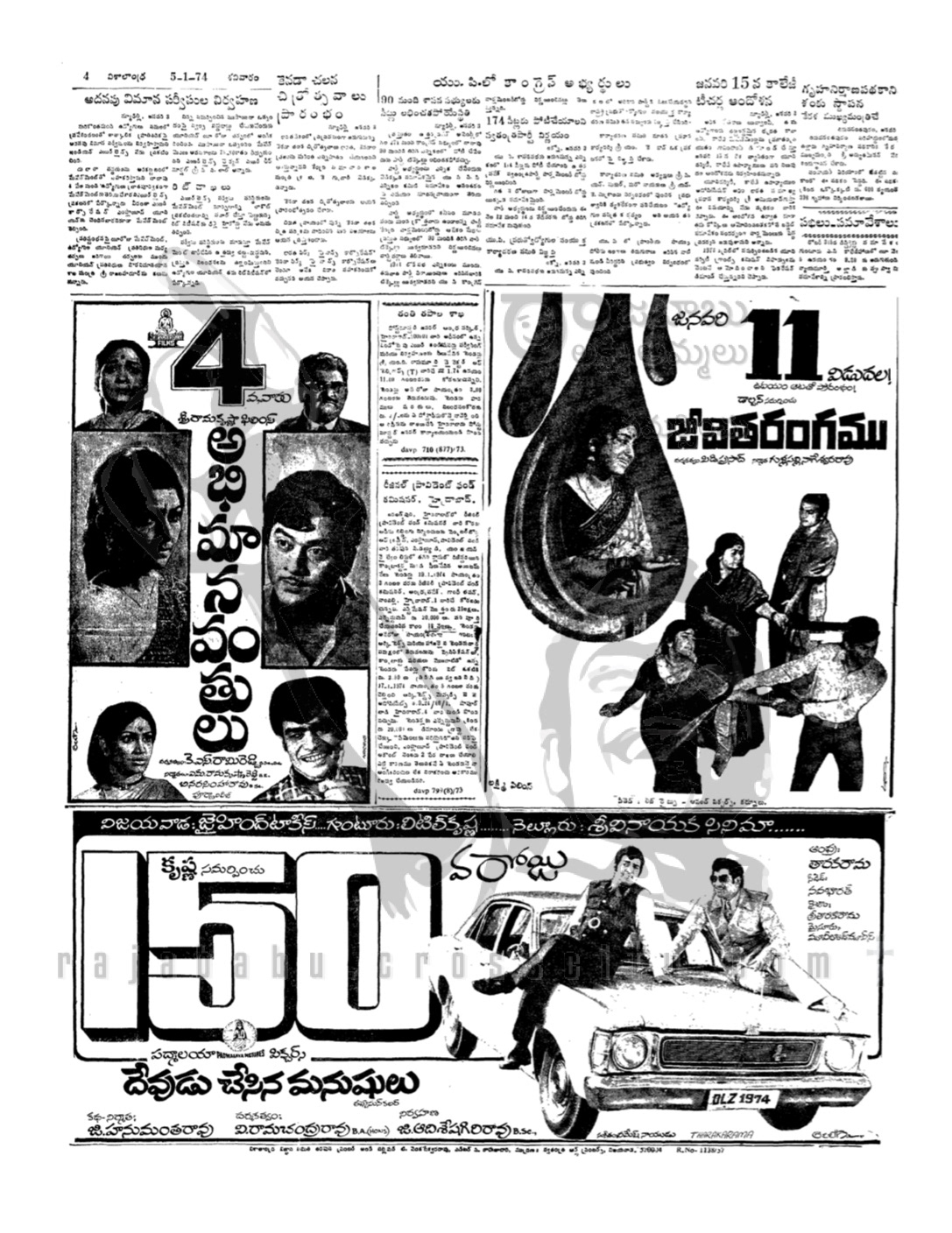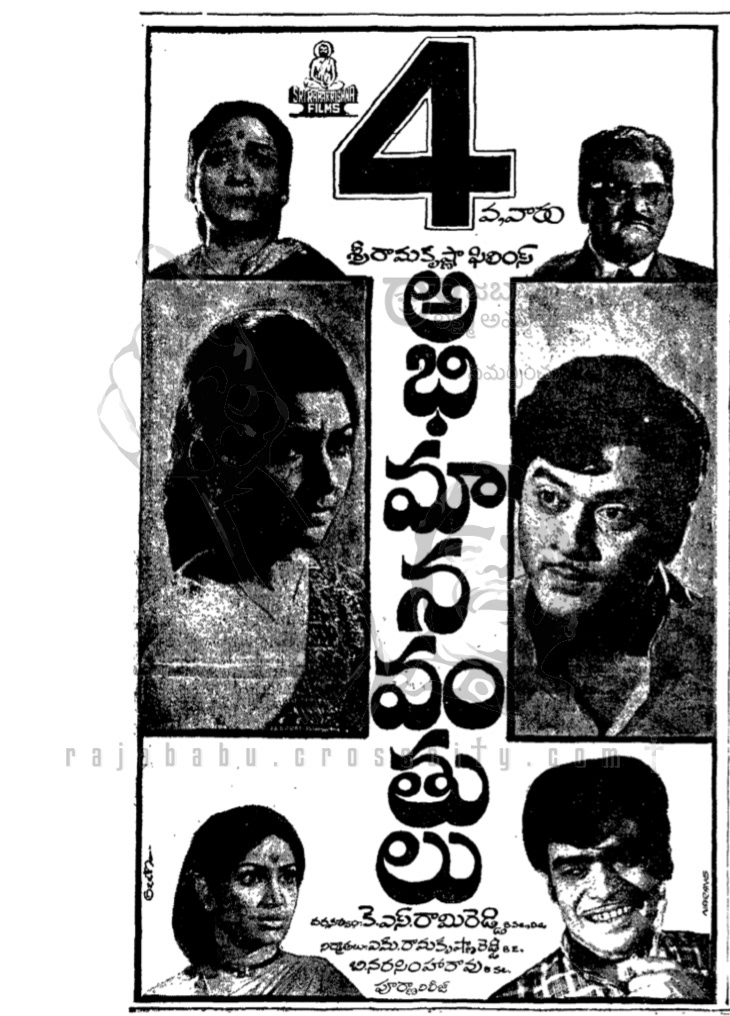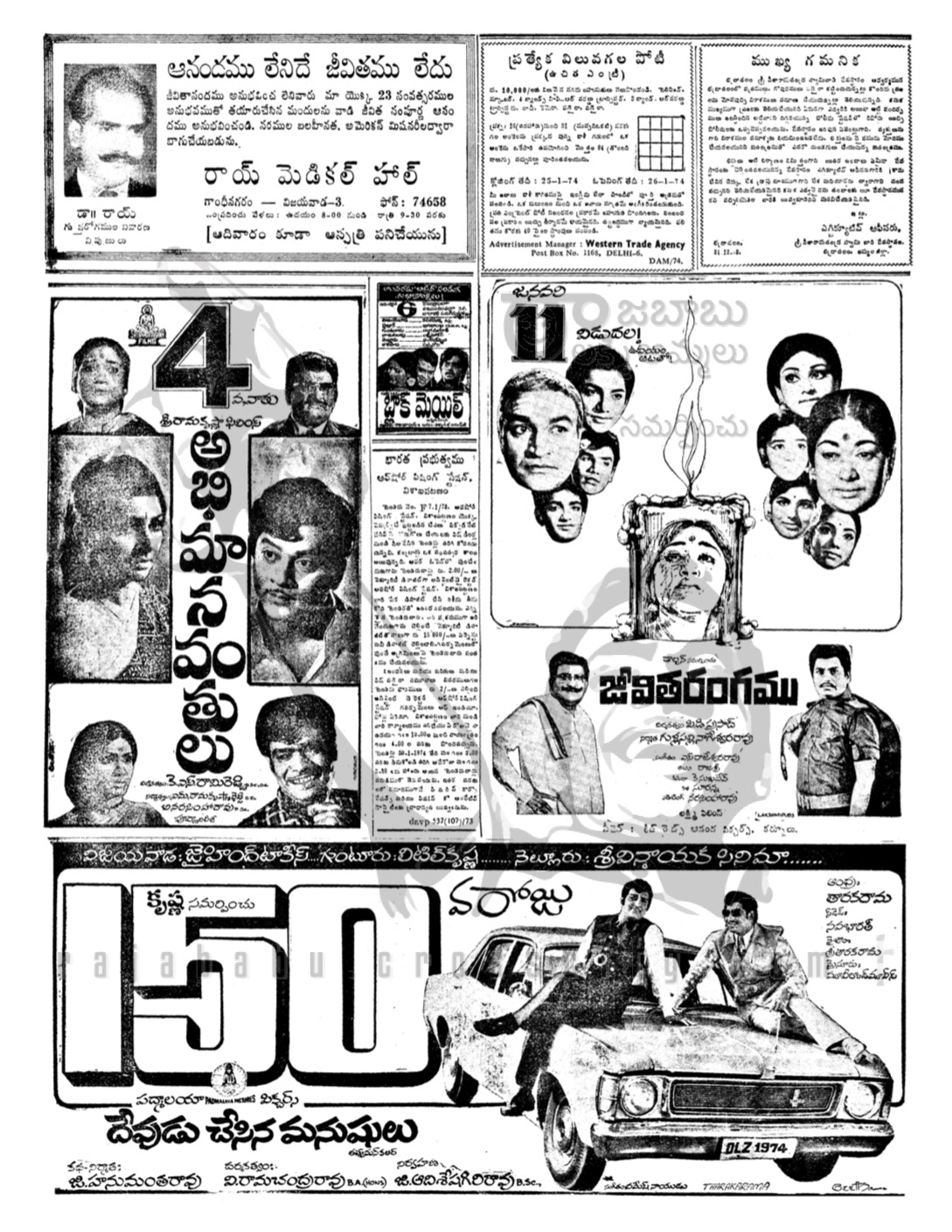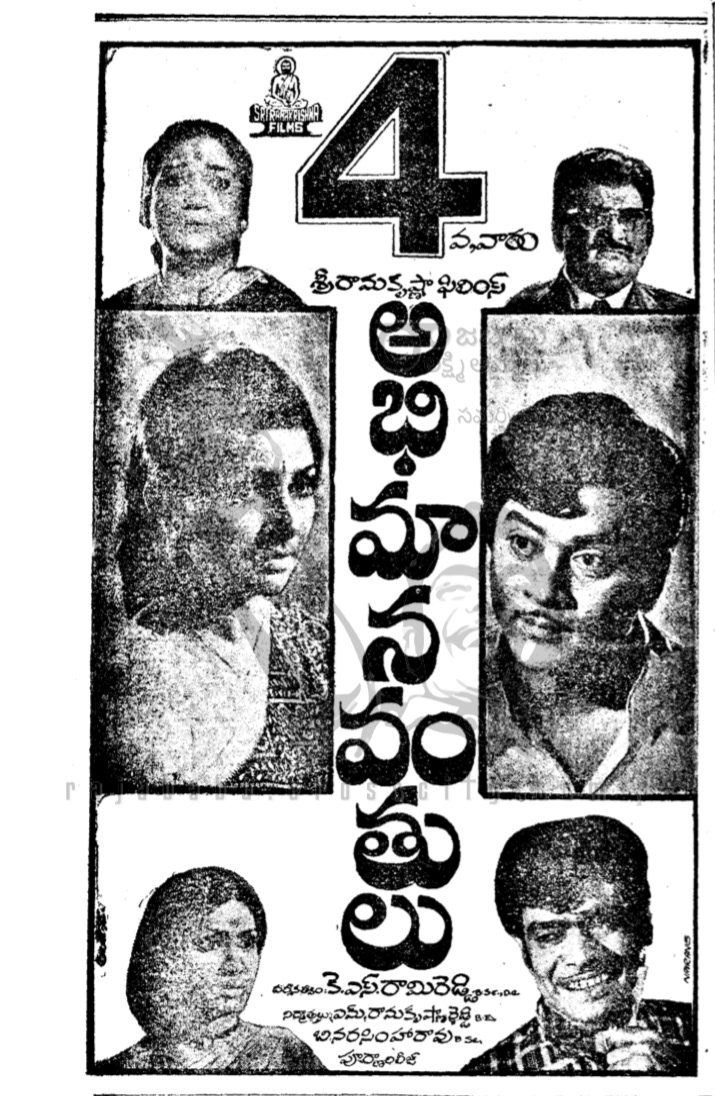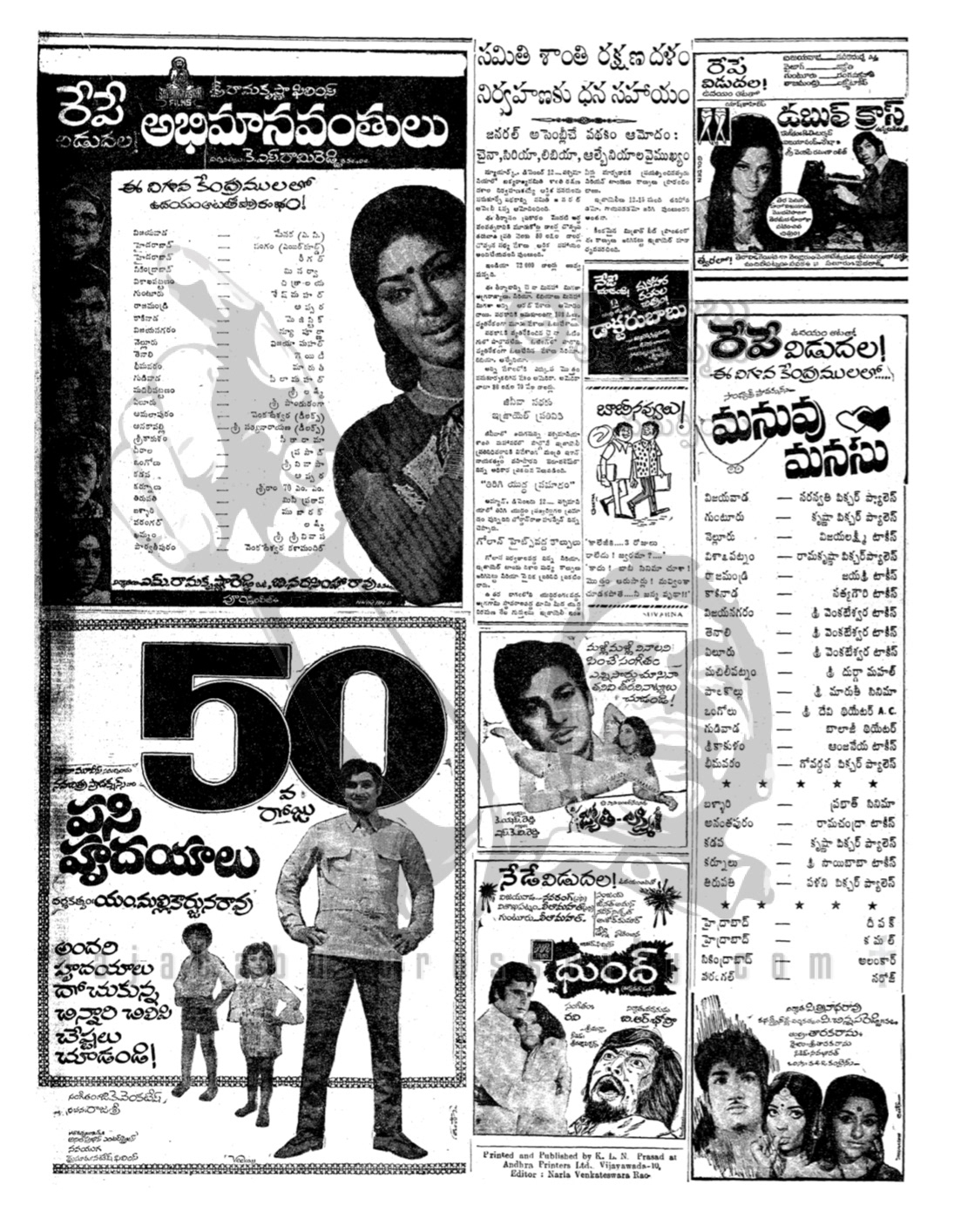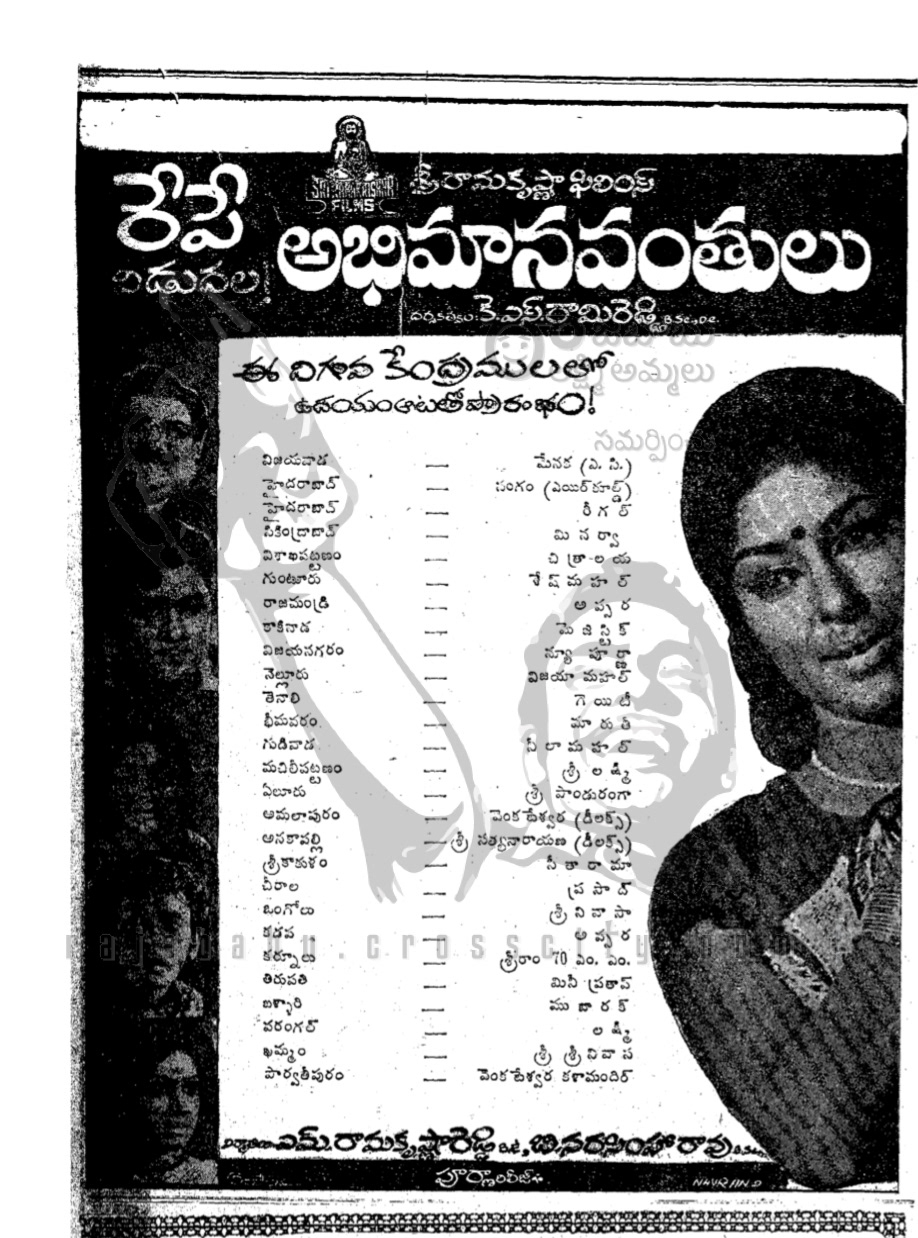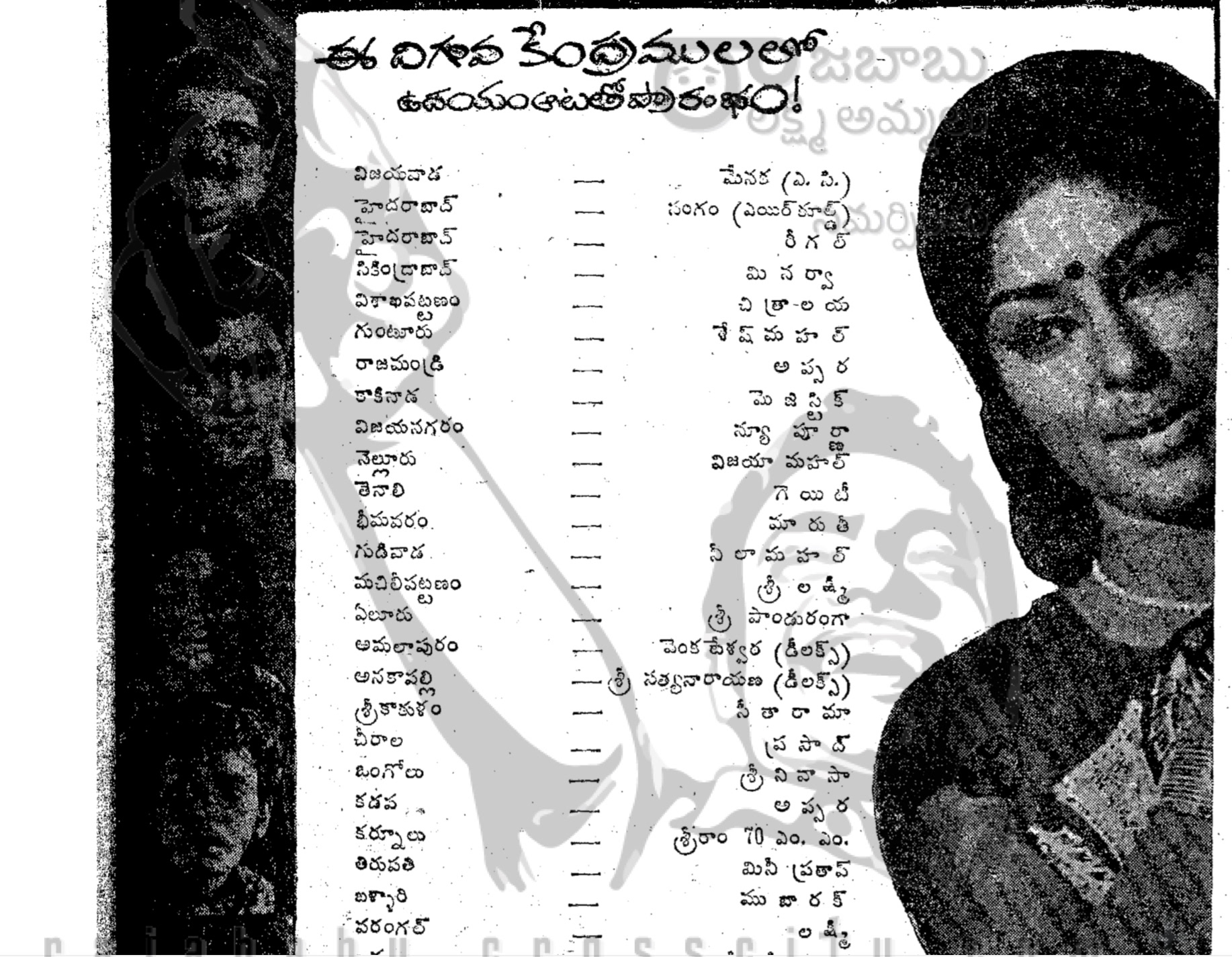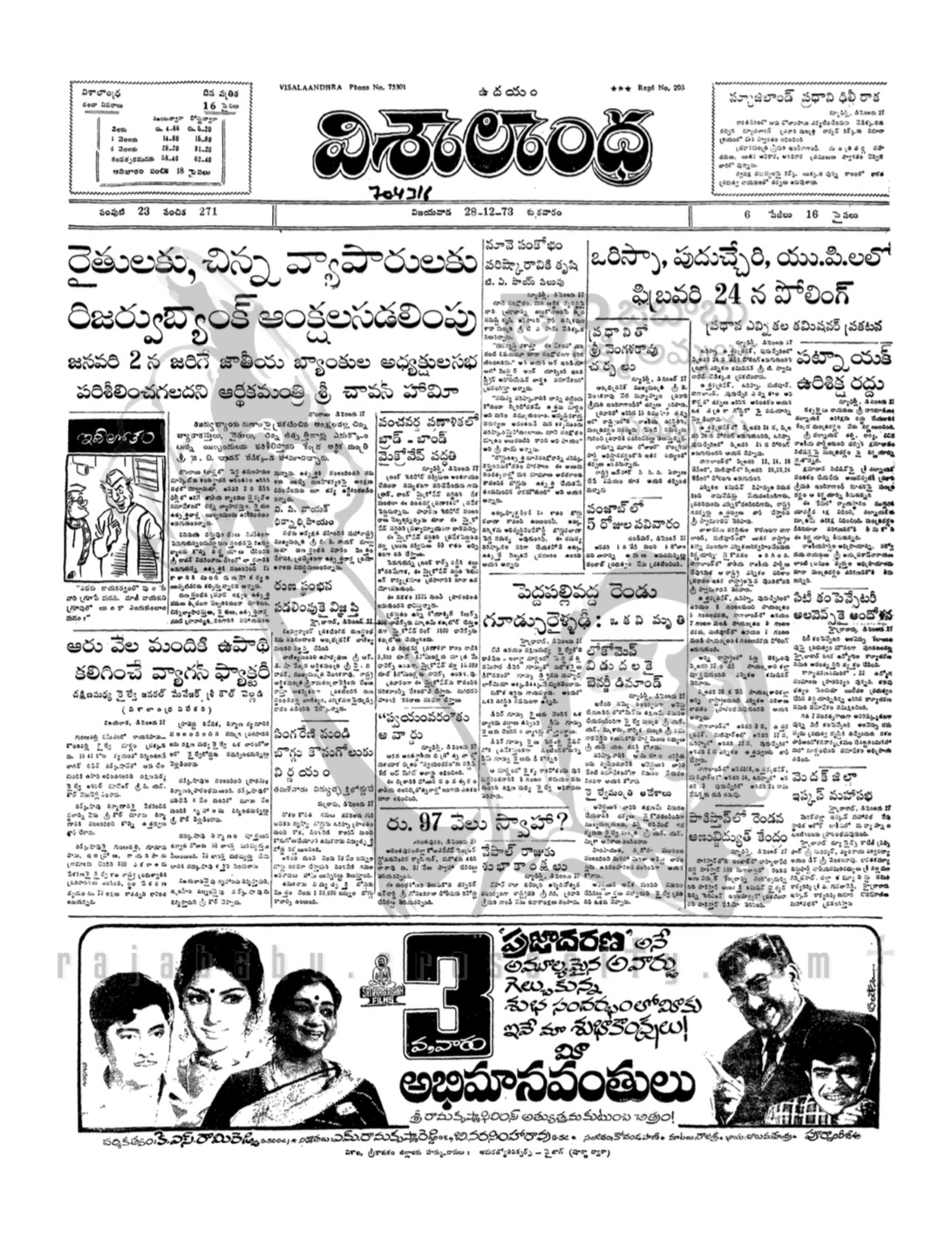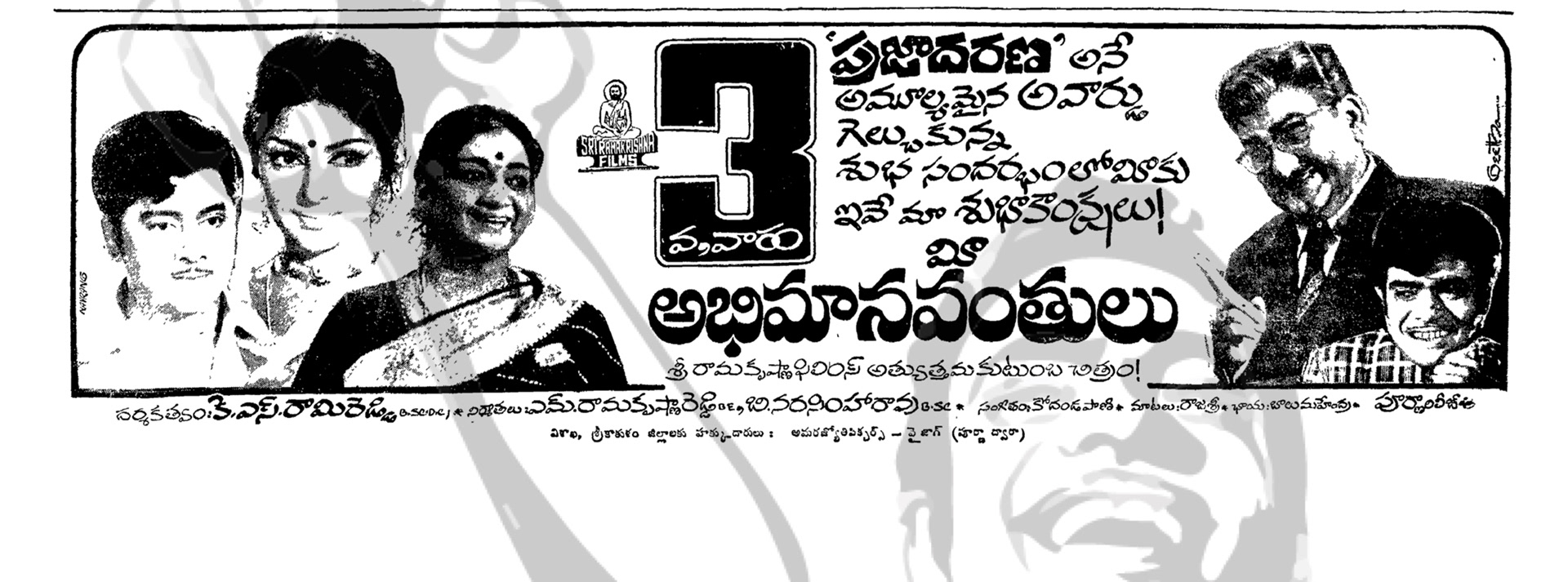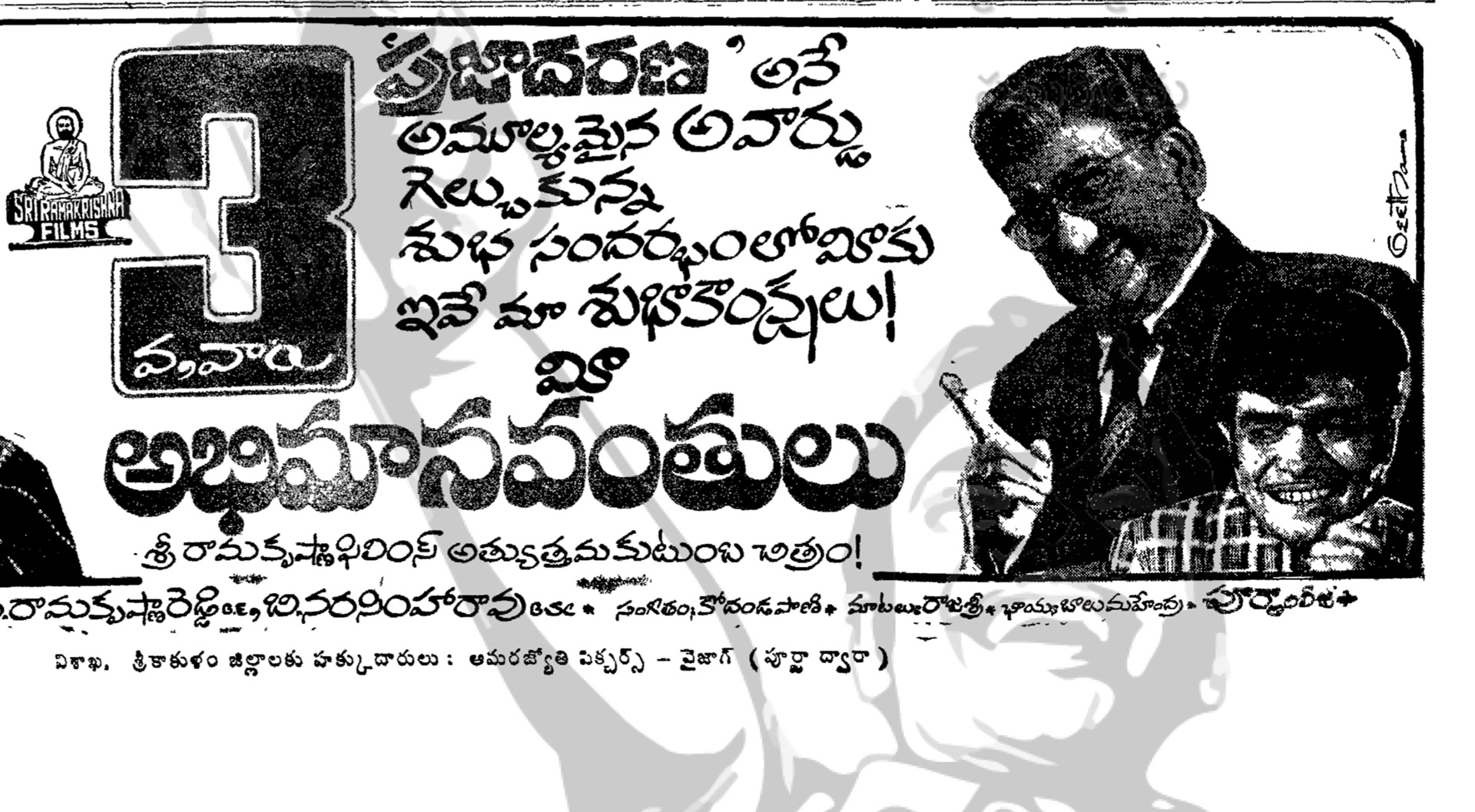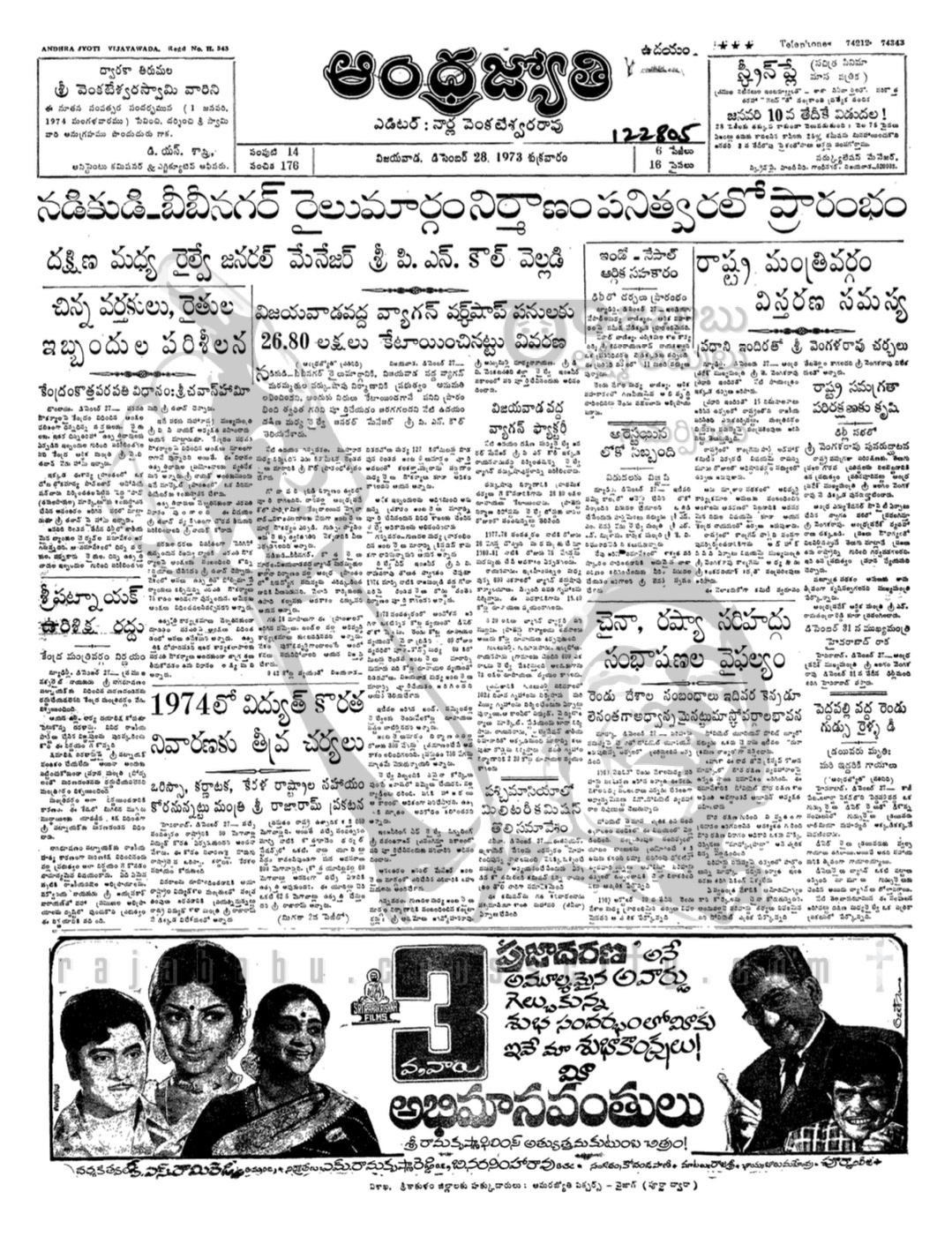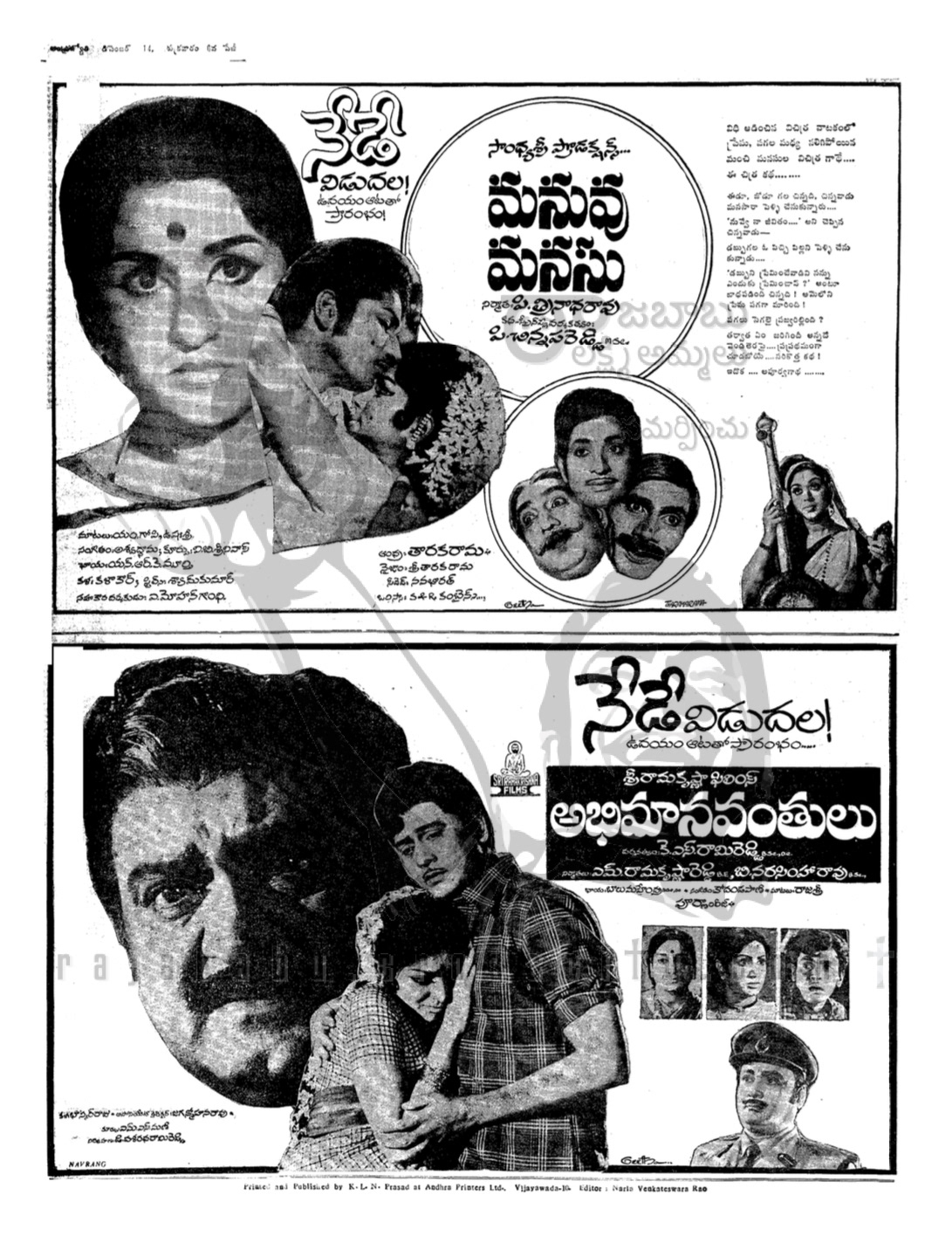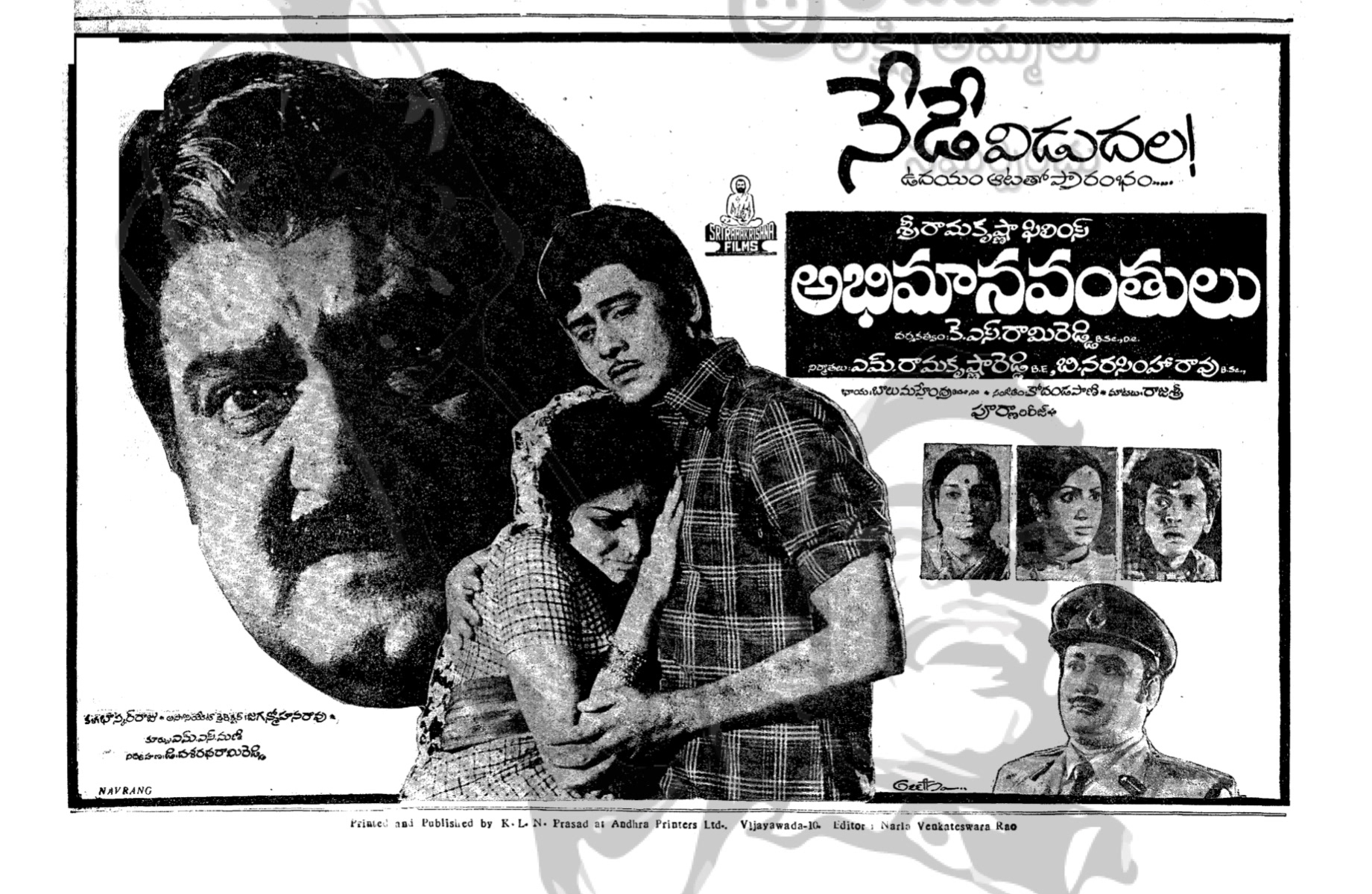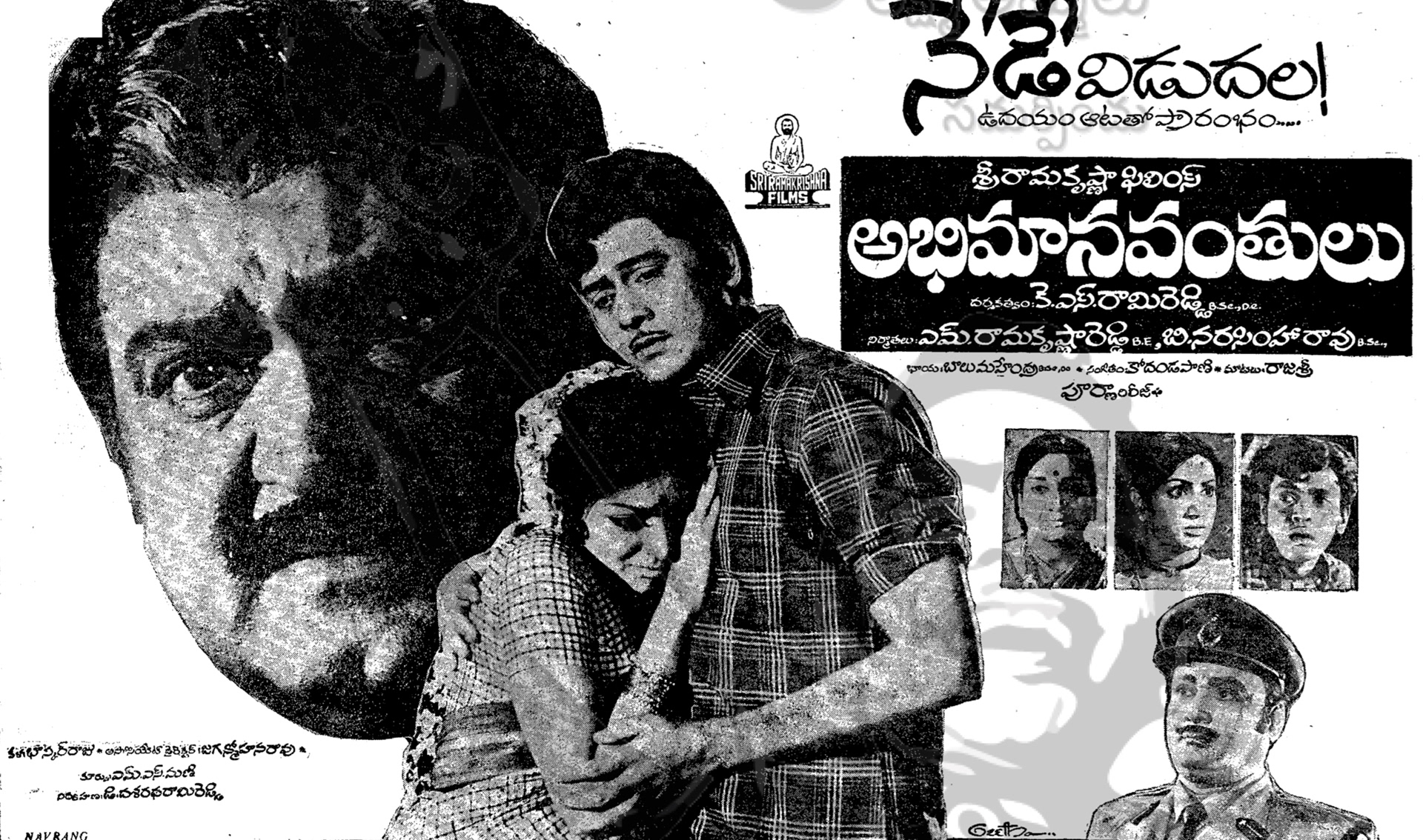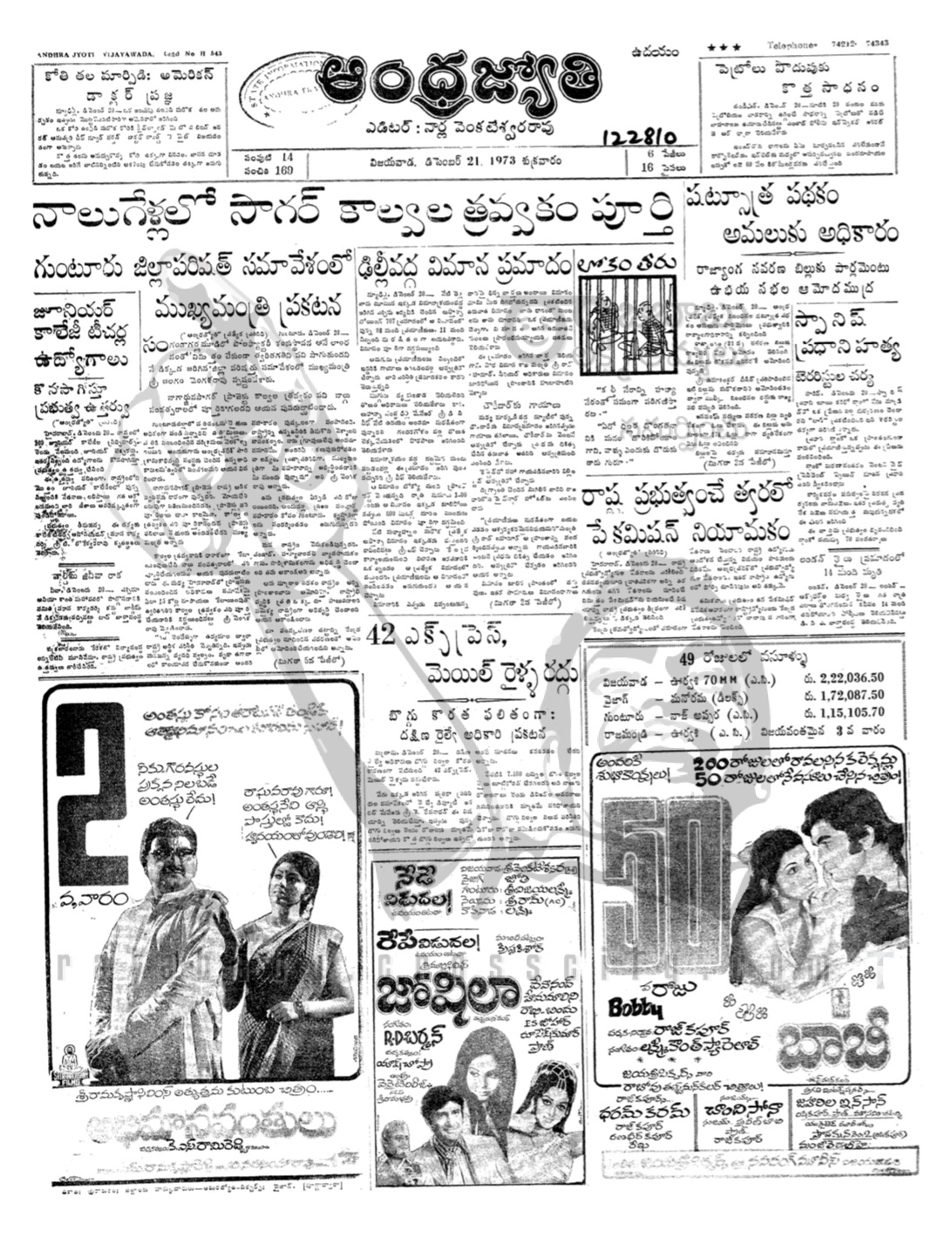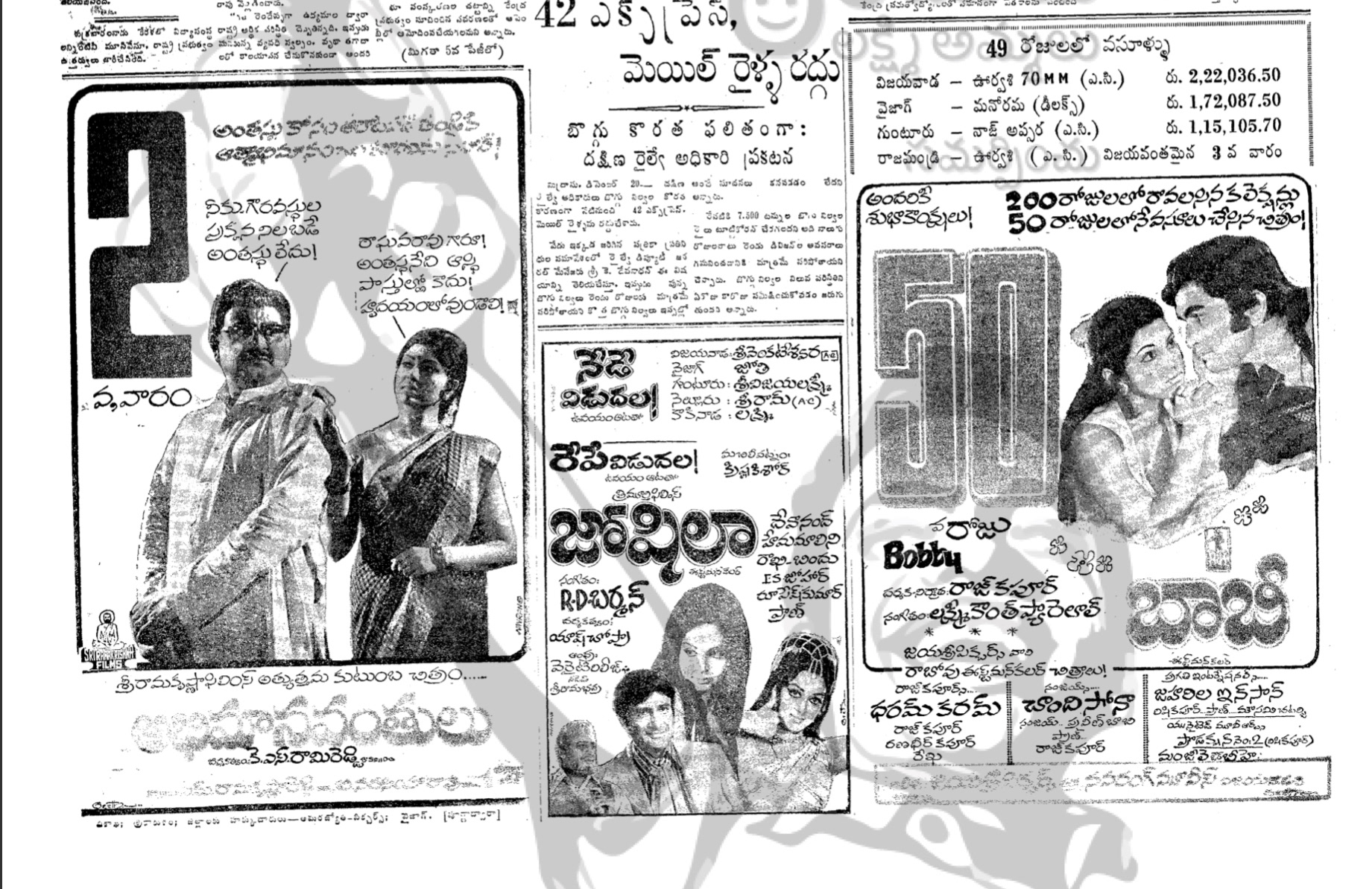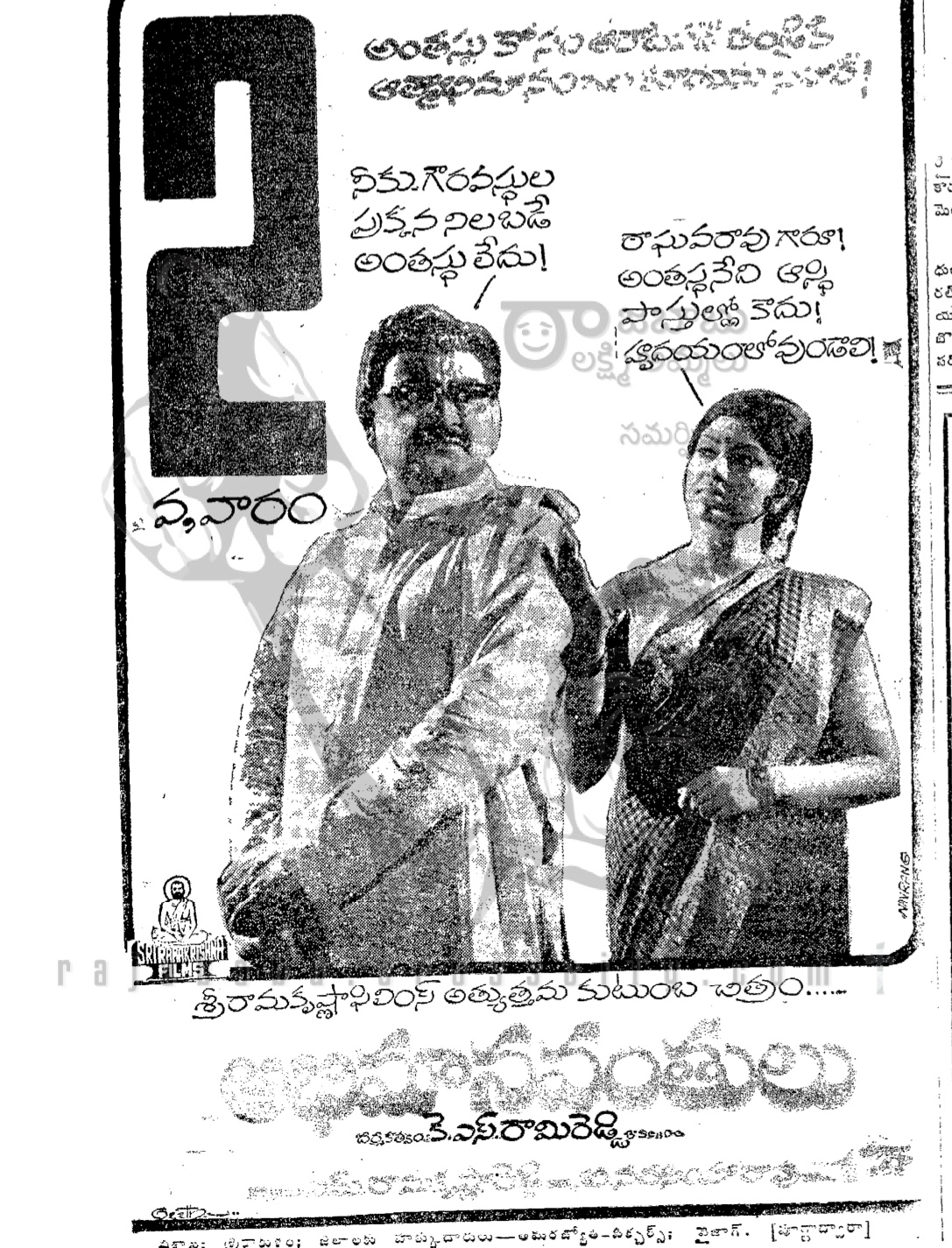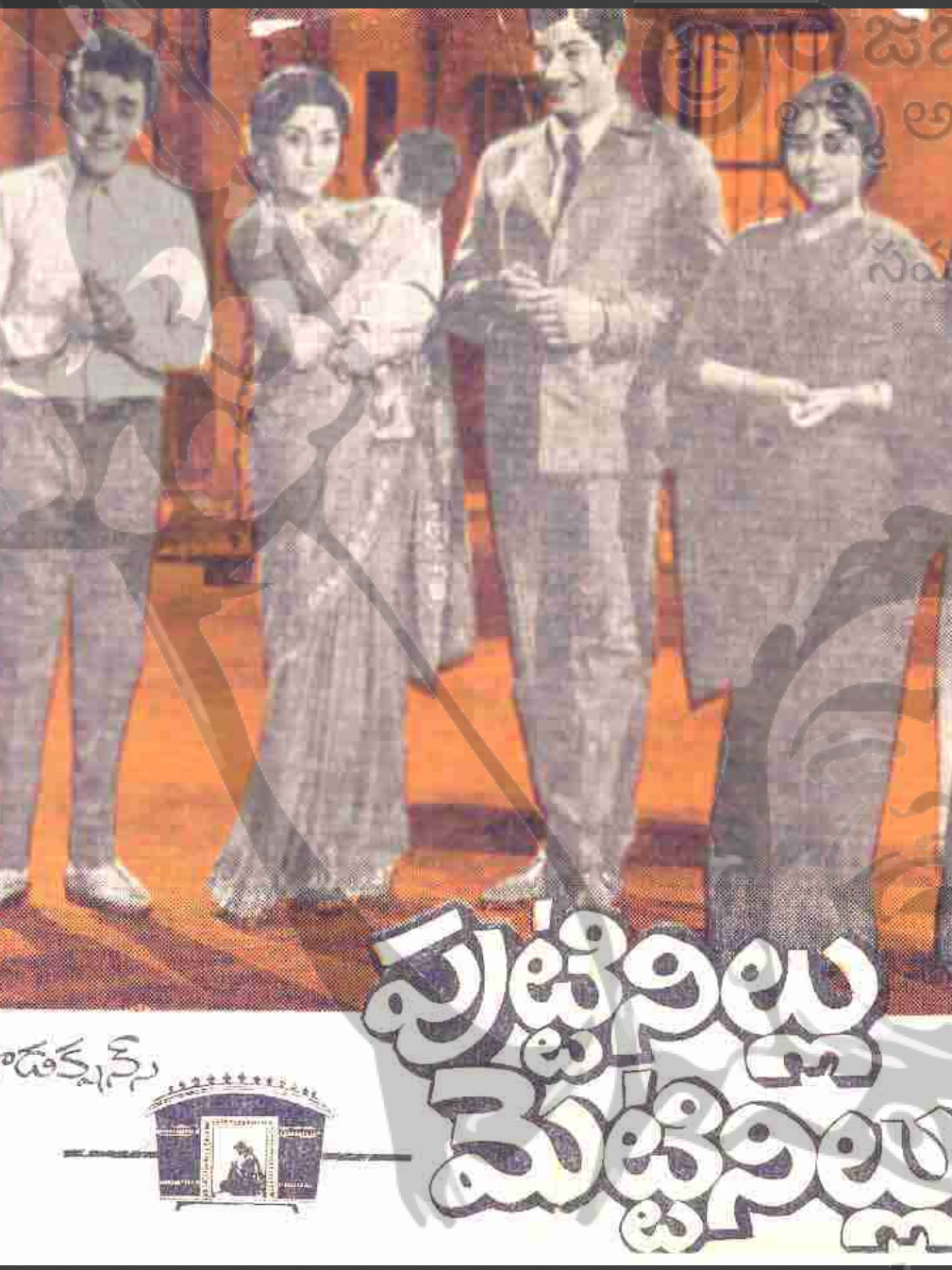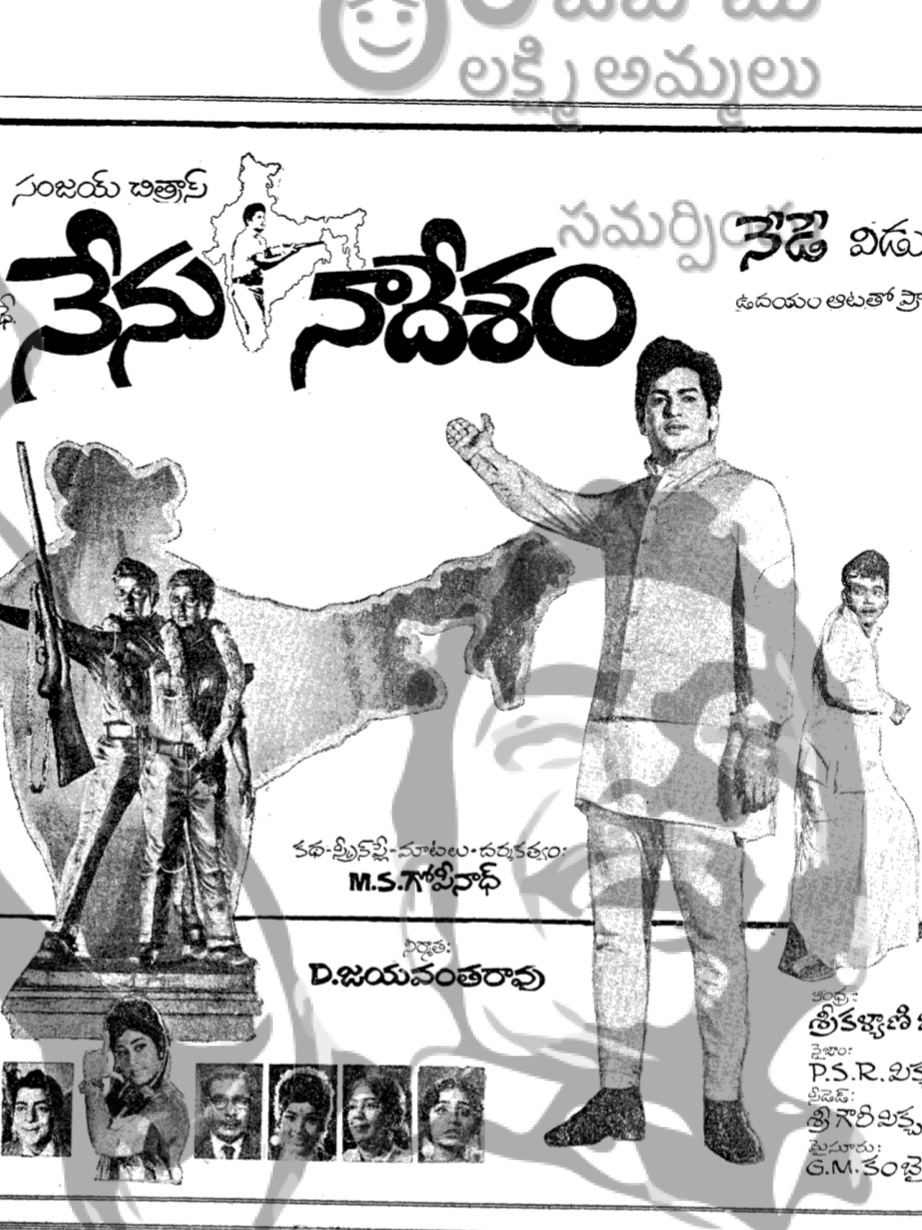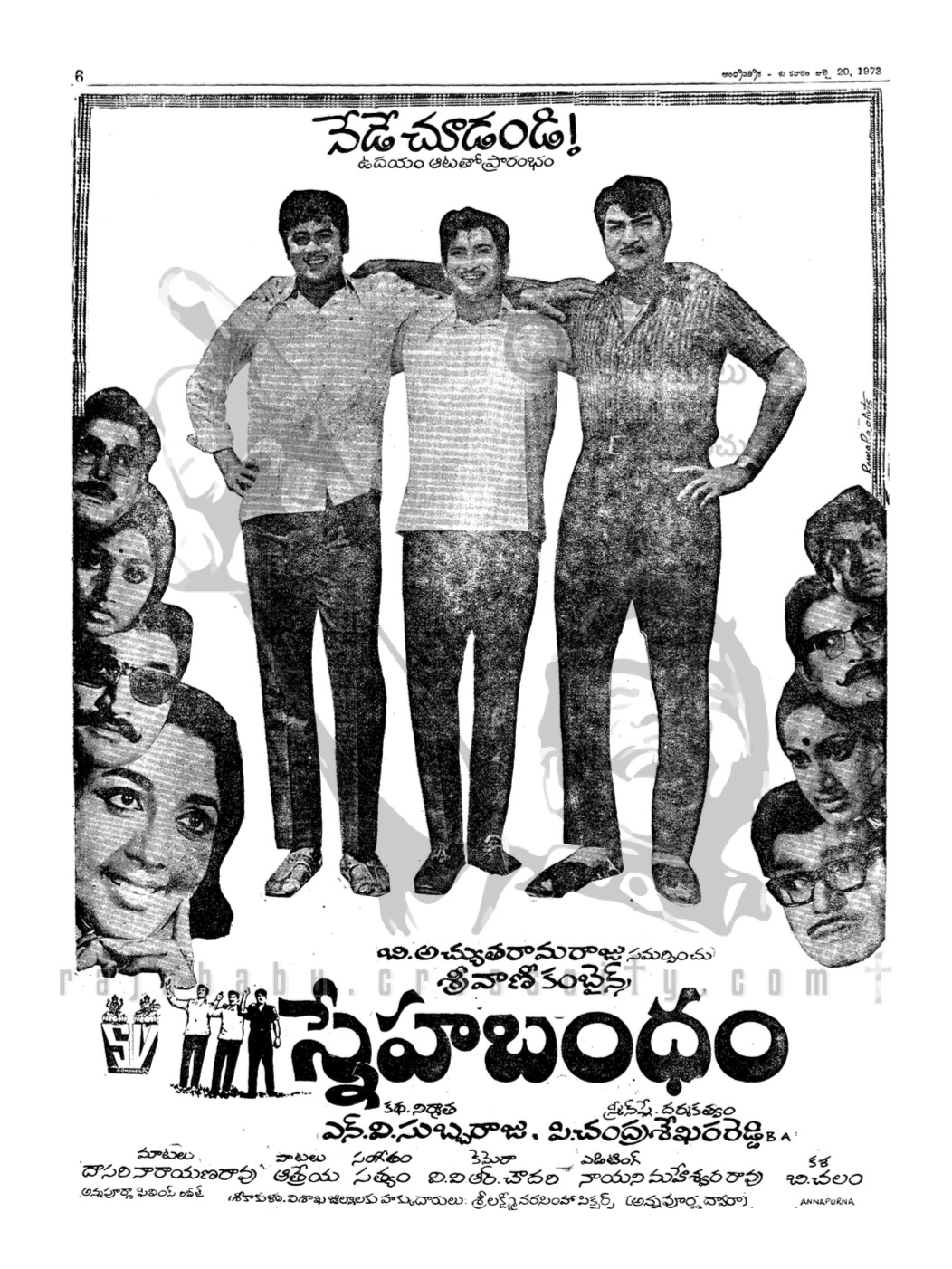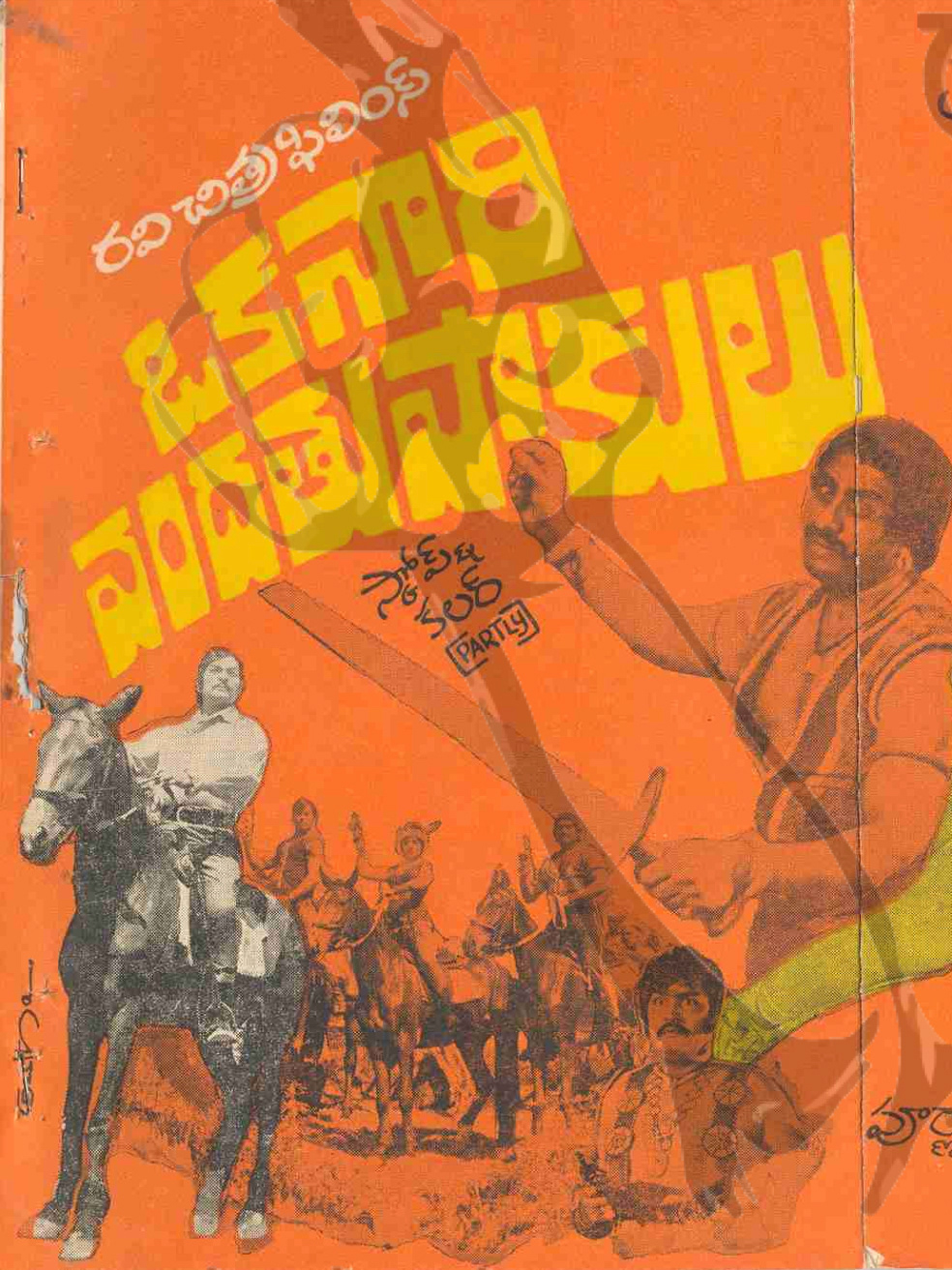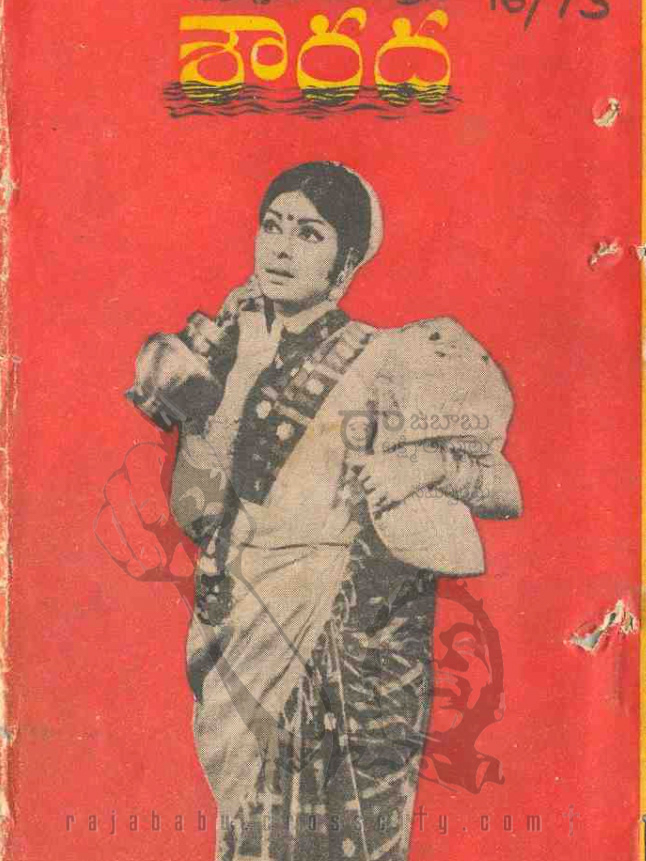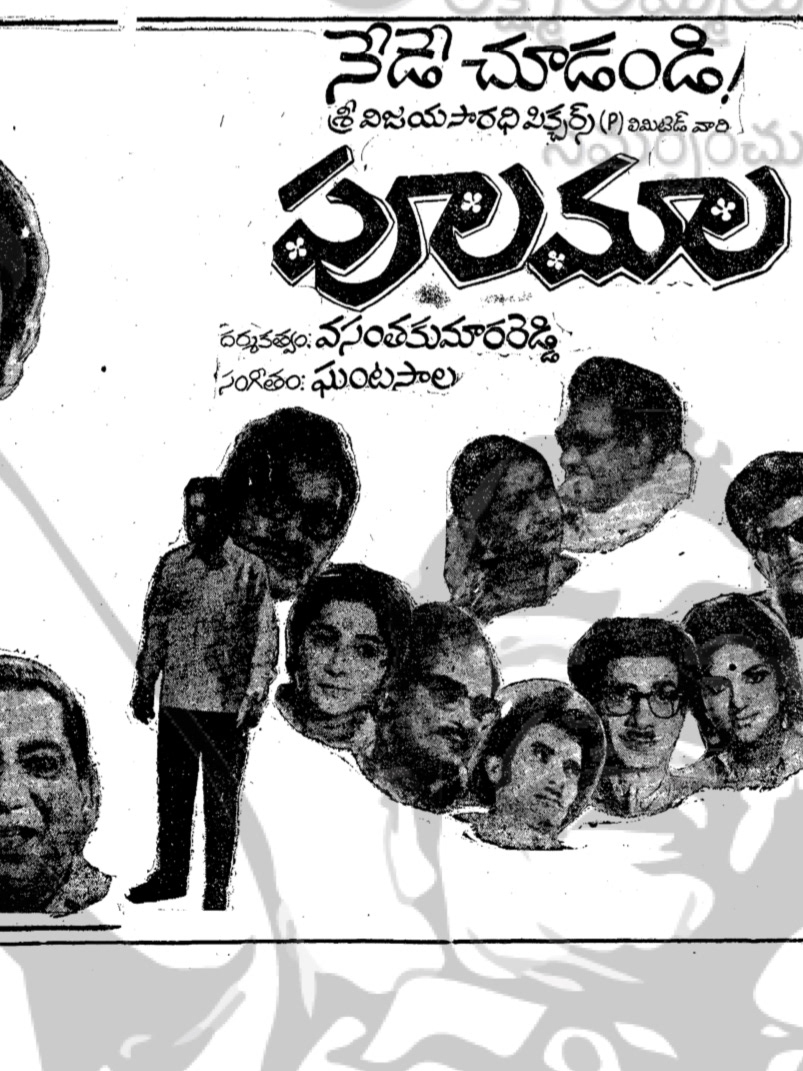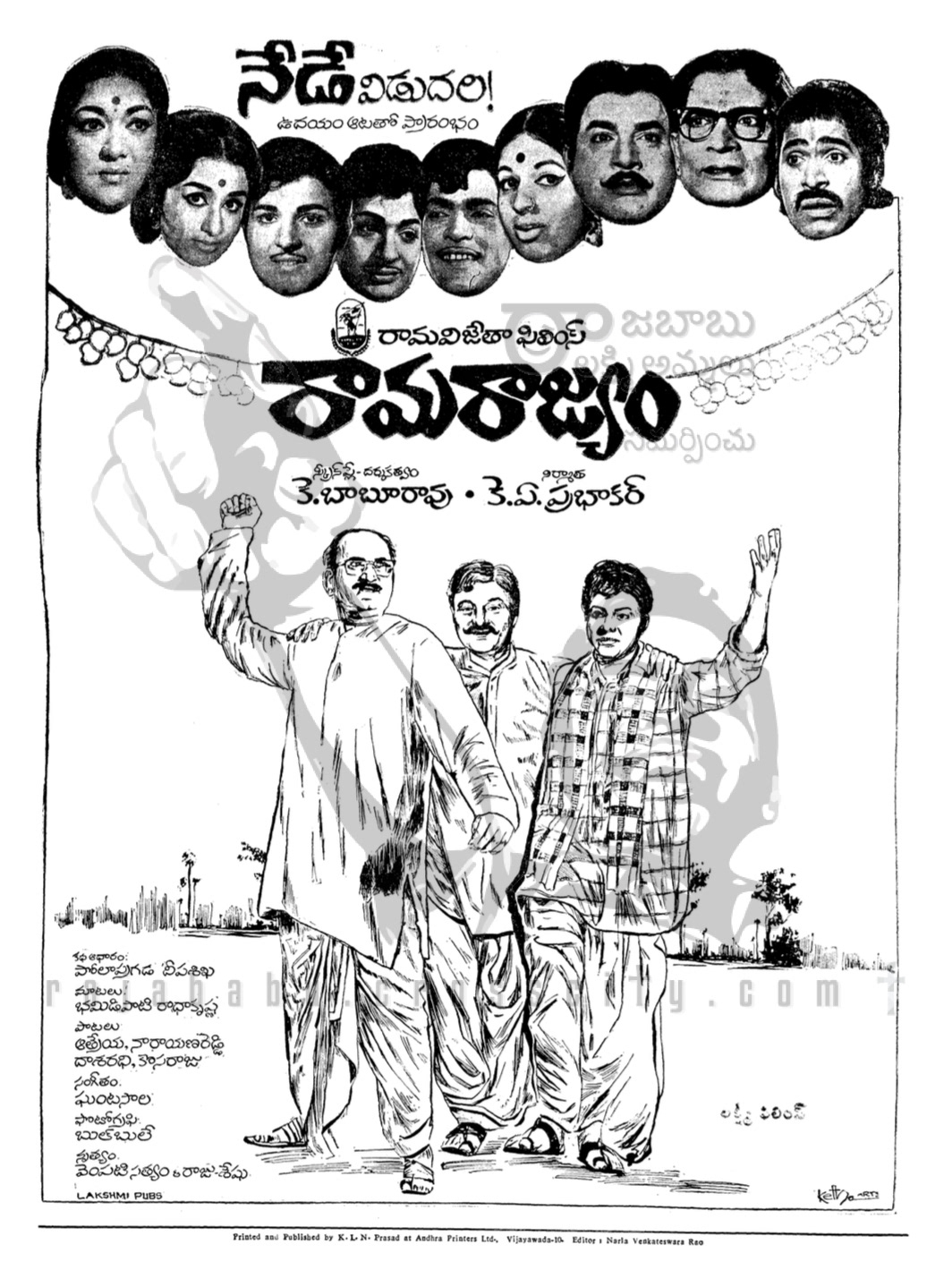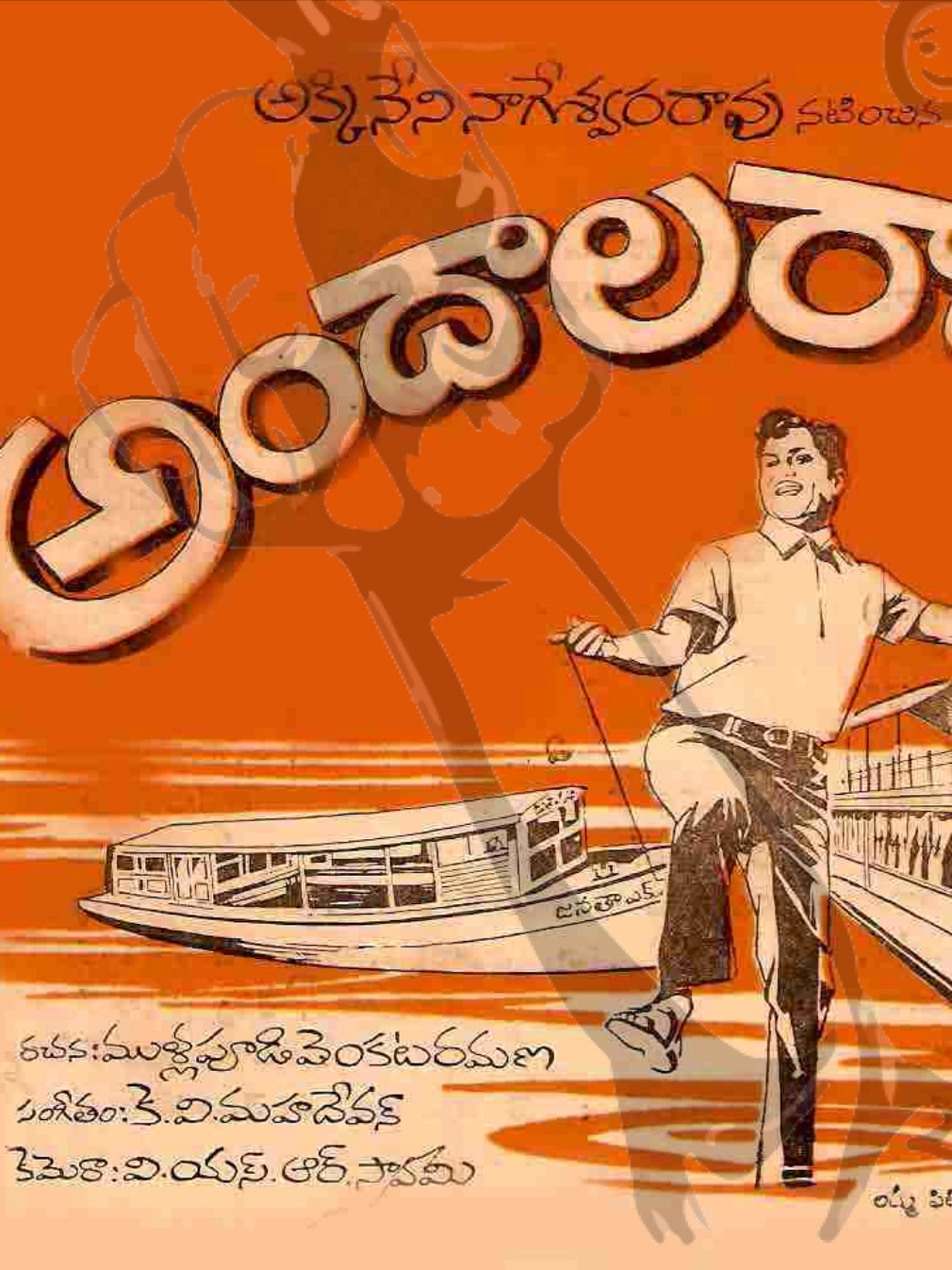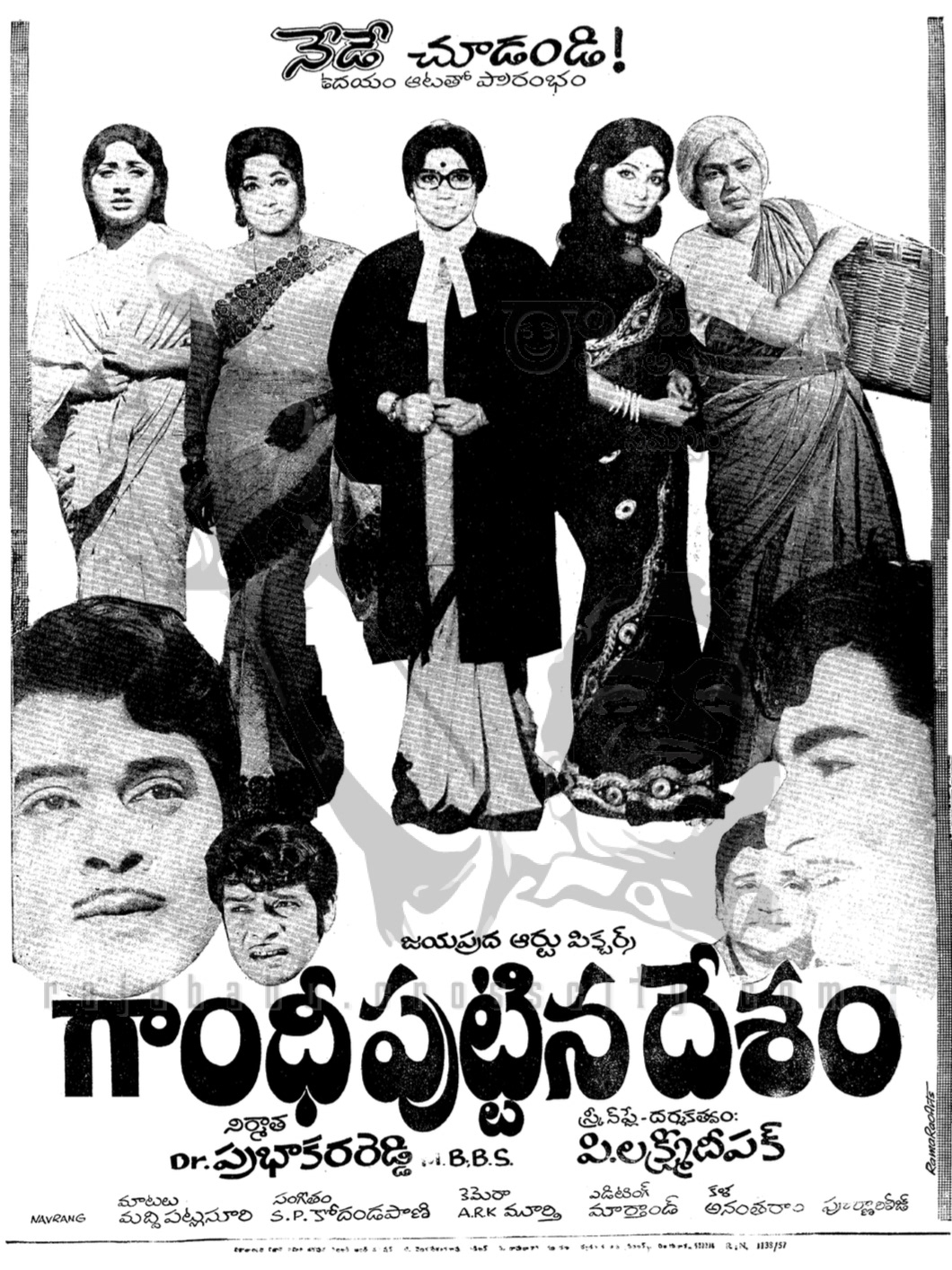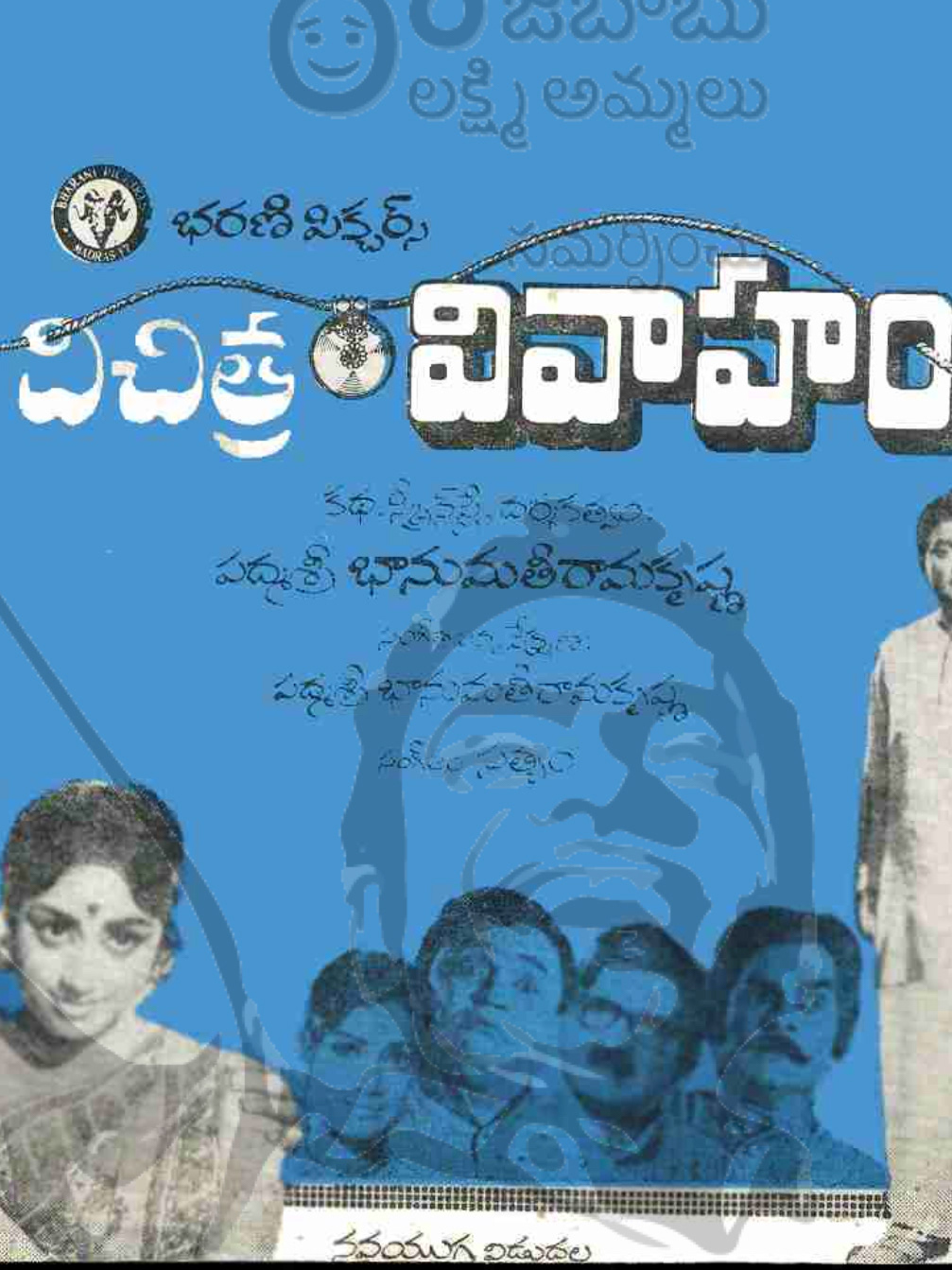Abimanavanthulu
K.S. Rami Reddy
Balu Mahendra (Cinematographer)
Country: India; Year: 1973; Language: Telugu; Color: Black and White
Studio: Sri Ramakrishna Films
Producer: M. Ramakrishna Reddy, B. Narasimha Rao; Cinematographer: Balu Mahendra; Editor: M.S. Mani; Composer: S.P. Kodandapani; Lyricist: C. Narayana Reddy, Dasaradhi, Kosaraju Raghavaiah Choudhury
Cast: S.V. Rangarao, Krishnam Raju, Rajababu, Sharada (Saraswati), Anjali Devi, Ramaprabha, Saradhi, Modhukuri Satyam, Potti Prasad, K.K. Sharma, Panchadhi Swamy, Kanakadurga, Neeraja, Prasanna Rani, Jhansi, Vani, Shanthi, Indira, Manjula Vijaykumar, Baby Varalakshmi, Baby Annapurna, Chalapathi Rao, Narayana, Kesava Rao, Subramanya Chowdary, Raghuram, Master Visweswara Rao, Master Harikrishna, Baby Vijaya, Sridhar, Ramadasu, Devadas, Mohan, Sobha, Vasudeva Reddy
Topic: Original Language, Released, Manasu Collection
Release Date: December 14, 1973
IMDb ID: 0324968
Associate Producer: M. Bhaskar Reddy, S. Prabhakar Reddy; Executive Producer: D. Dhasaradharami Reddy; Dialogue: Rajasri (Writer)
Singer: P. Susheela, S.P. Balasubrahmanyam, Vani Jairam, Kousalya, Navakanth, V. Ramakrishna Das
Art Director: V. Bhaskar Raju; Stills: N.V.V. Prasad; Publicity Design: Geetha Subbarao, Ramarao Arts; Dance Director: Vempati Chinna Satyam, Sundaram, N.A. Tara (Dance Master)
Balu Mahendra (Cinematographer)
(b. 1946) Tamil cameraman and director, born in Sri Lanka as Benjamin Mahendra. Son of a college professor. Voracious film viewer; developed an early interest in photography. Graduated from London University and from the FTII (1969) as cinematographer, going on to shoot Nellu (1974) for Kariat. Pioneered innovative camera style for colour in South India. Worked mainly in the Malayalam avant-garde shooting films for Sethumadhavan and P.N. Menon, Telugu directors Bapu and K. Vishwanath and Tamil director J. Mahendran. Made his first film in Kannada (Kokila); later work mainly in Malayalam and Tamil. Regards his Malayalam films, made with greater freedom in a less demanding economic system, as his personal work. Pioneered a new brand of Tamil art cinema with Veedu and Sandhya Ragam. Films have a strong literary base but rely on sharply defined visuals (often using natural light) sparse dialogue and few characters. The greater emphasis on cinematicism, making dialogue secondary to visual, cleared the way for Mani Rathnam’s films. Shot Rathnam’s debut Pallavi Anupallavi. His moral tales are often concerned with the status of women (Kokila), the aged (Sandhya Ragam), sexual violence (his most famous film, Moondram Pirai) or bureaucracy (Veedu). Although he claims an affiliation with the realism of De Sica and Satyajit Ray, film-maker and critic K. Hariharan points to similarities with the French New Wave’s fascination with the American cinema from which Mahendra borrowed themes and stylistic devices: Moodupani was based on Psycho (1960); Olangal borrows from Dick Richards’ Man, Woman and Child (1982); Irattaival Kuruvi is based partly on Blake Edwards’s Micki and Maude (1984) and Azhiyada Kolangal borrows from Summer of ’42 (1971). The emphasis on psychological realism at times combines with popular elements such as calendar art and novelettes (e.g. the climactic scene of Moondram Pirai). Writes, edits and shoots own films as well as closely controlling make-up, costumes, etc.
Songs:
1. Song: Ee Veenapaina Palikina Ragam ఈ వీణపైన పలికిన రాగం నాలోన విరిసిన అనురాగం (Music: S.P. Kodandapani; Lyricist: C. Narayana Reddy; Singer: P. Susheela)
2. Song: Cheyigalipi Manasu చేయిగలిపి మనసు నిలిపి చెలు దున్నాలిరా (Music: S.P. Kodandapani; Lyricist: Kosaraju Raghavaiah Choudhury; Singer: Kousalya, S.P. Balasubrahmanyam, P. Susheela, Navakanth, Chorus)
3. Song: Uyyala Jampala ఉయ్యాలా ….జంపాలా ఊగరా ఊగరా (Music: S.P. Kodandapani; Lyricist: Dasaradhi; Singer: P. Susheela, V. Ramakrishna Das)
4. Song: Yeppativale Kadhura ఎప్పటి వలె కాదురా నాస్వామీ ఎప్పటివలె కాదురా (Music: S.P. Kodandapani; Lyricist: C. Narayana Reddy; Singer: Vani Jairam)
5. Song: O Manasu dhochina Chelikada ఓ మనసు దోచిన చెలికాడా మమత పెంచిన చినవాడా (Music: S.P. Kodandapani; Lyricist: Dasaradhi; Singer: S.P. Balasubrahmanyam, P. Susheela)
2. Song: Cheyigalipi Manasu చేయిగలిపి మనసు నిలిపి చెలు దున్నాలిరా (Music: S.P. Kodandapani; Lyricist: Kosaraju Raghavaiah Choudhury; Singer: Kousalya, S.P. Balasubrahmanyam, P. Susheela, Navakanth, Chorus)
3. Song: Uyyala Jampala ఉయ్యాలా ….జంపాలా ఊగరా ఊగరా (Music: S.P. Kodandapani; Lyricist: Dasaradhi; Singer: P. Susheela, V. Ramakrishna Das)
4. Song: Yeppativale Kadhura ఎప్పటి వలె కాదురా నాస్వామీ ఎప్పటివలె కాదురా (Music: S.P. Kodandapani; Lyricist: C. Narayana Reddy; Singer: Vani Jairam)
5. Song: O Manasu dhochina Chelikada ఓ మనసు దోచిన చెలికాడా మమత పెంచిన చినవాడా (Music: S.P. Kodandapani; Lyricist: Dasaradhi; Singer: S.P. Balasubrahmanyam, P. Susheela)
